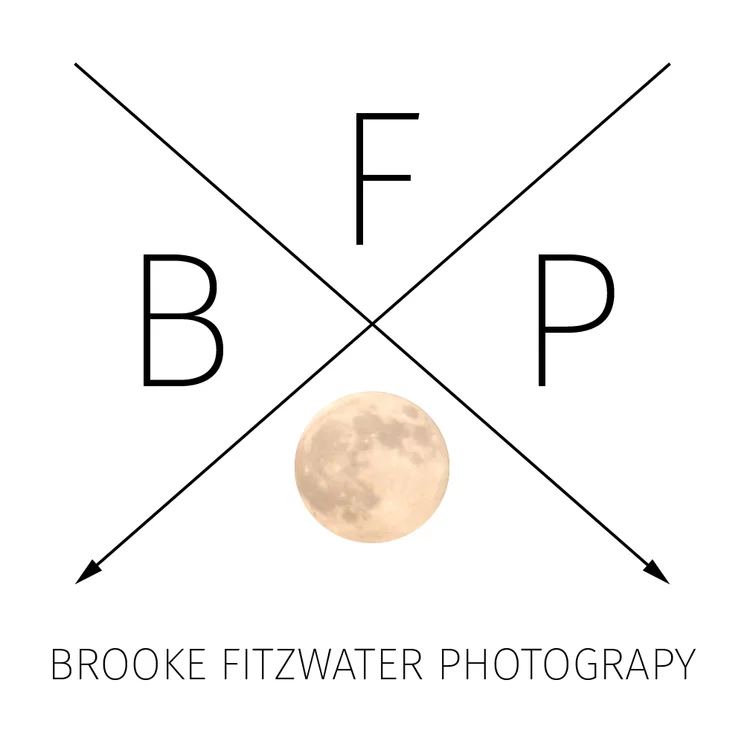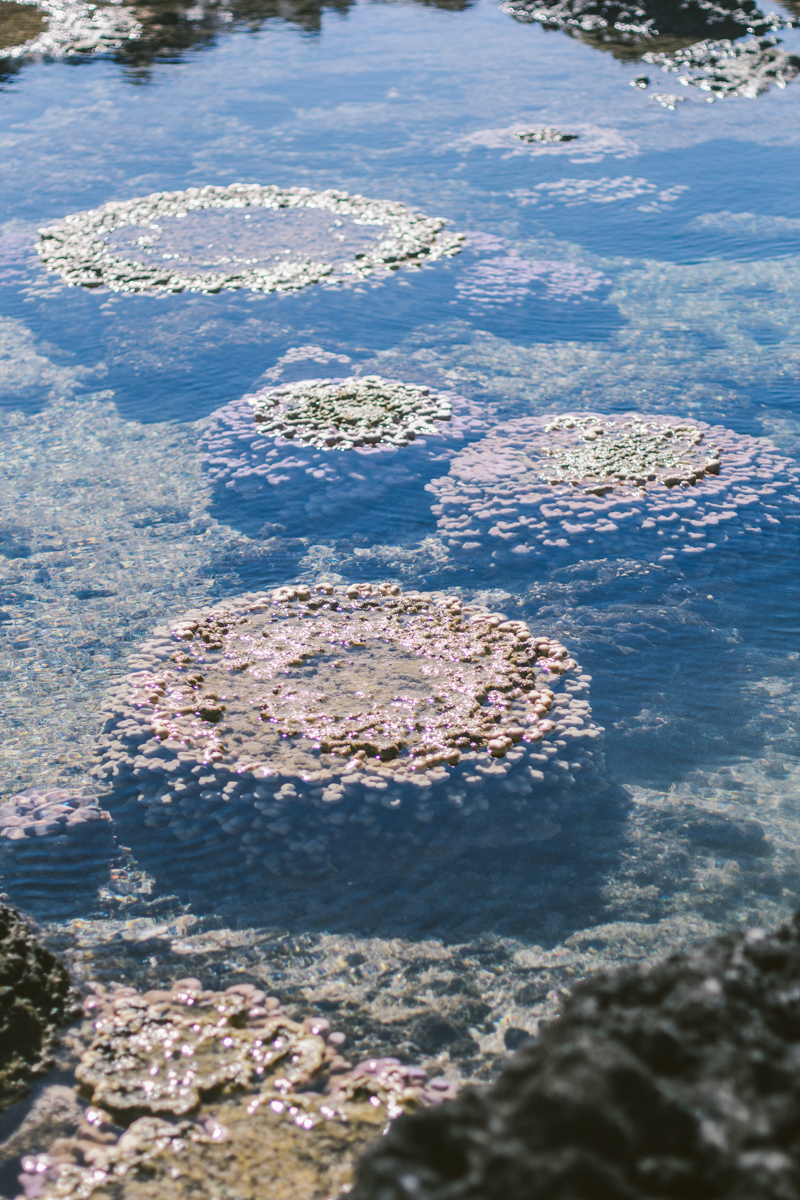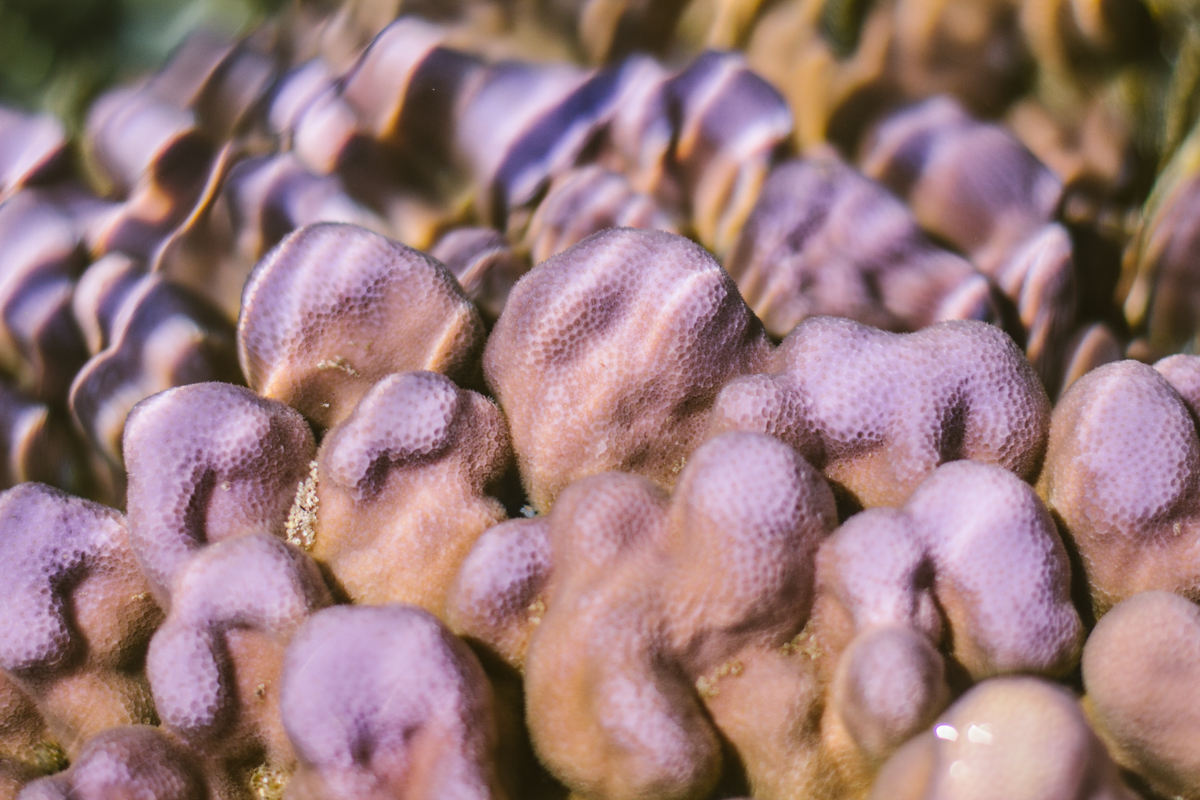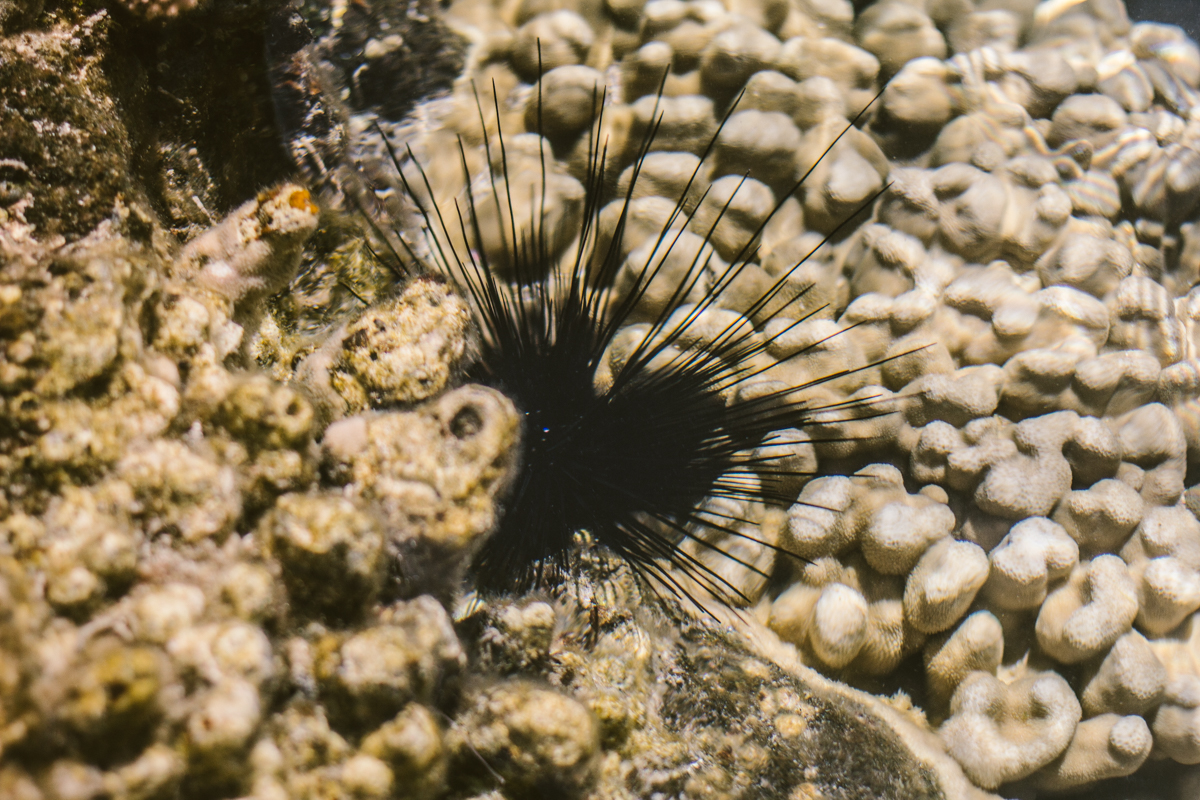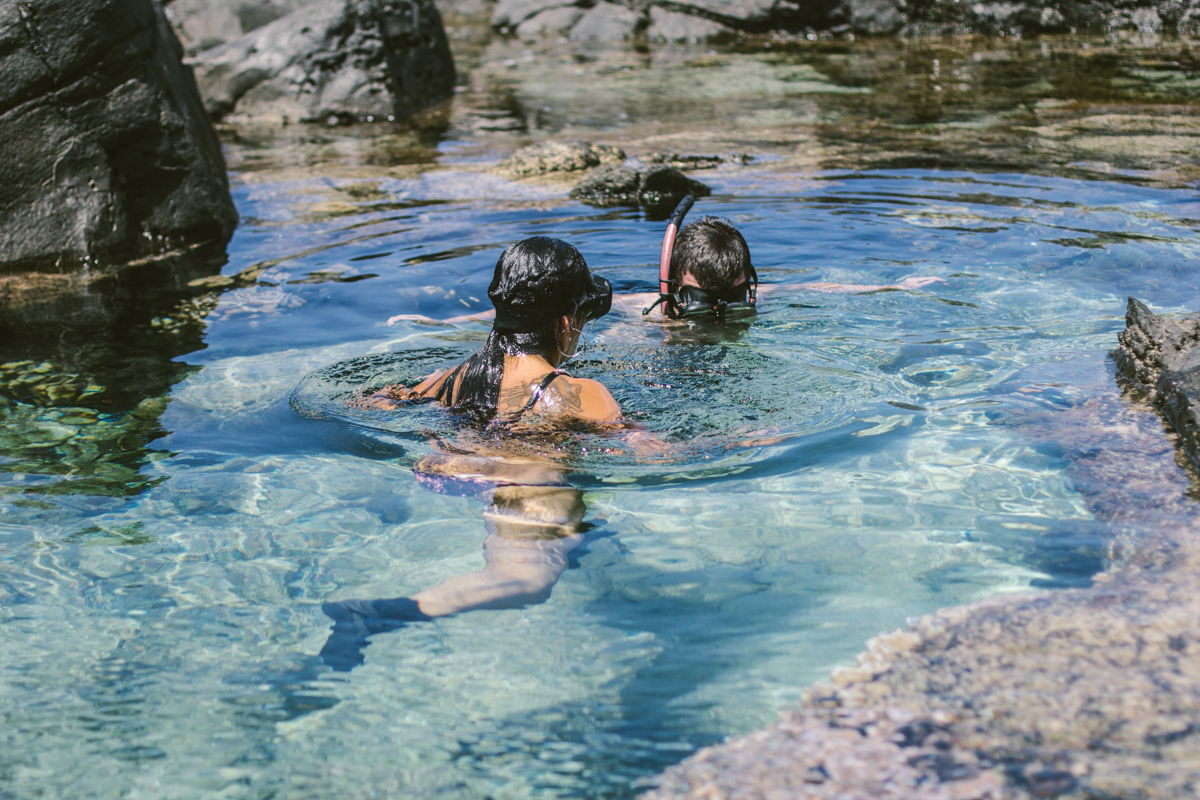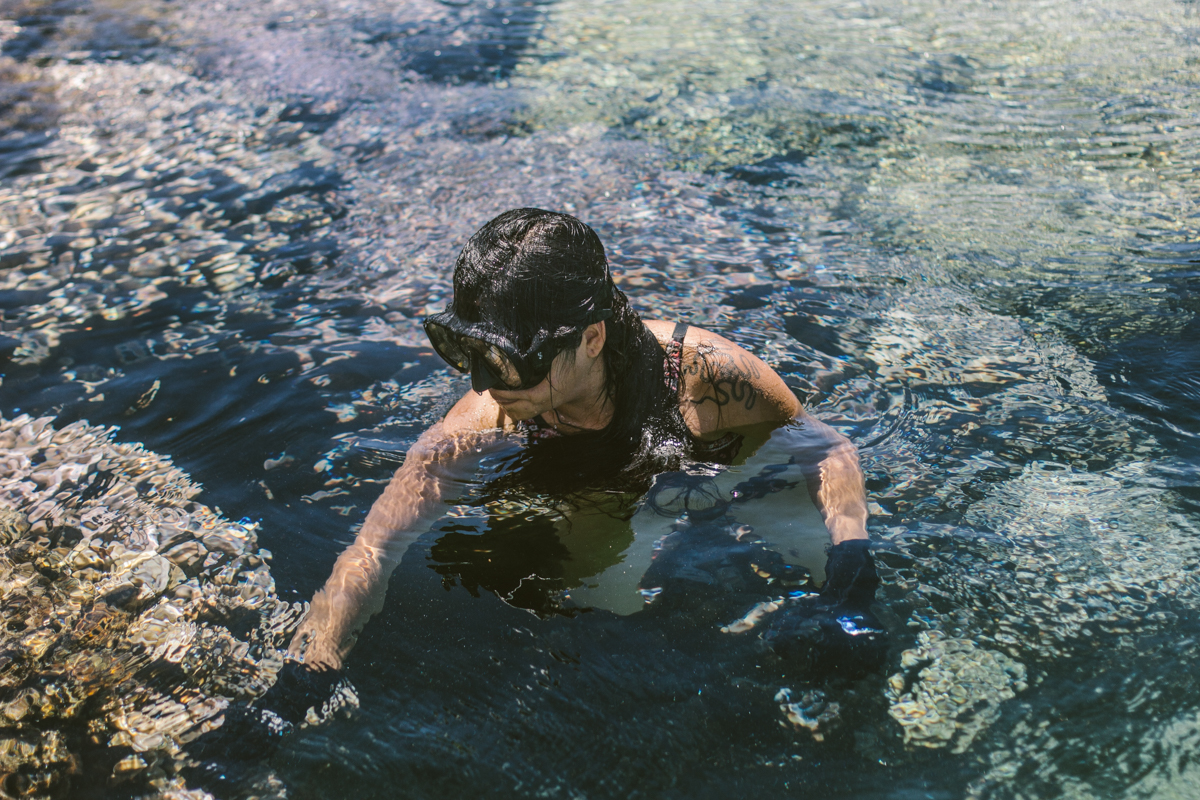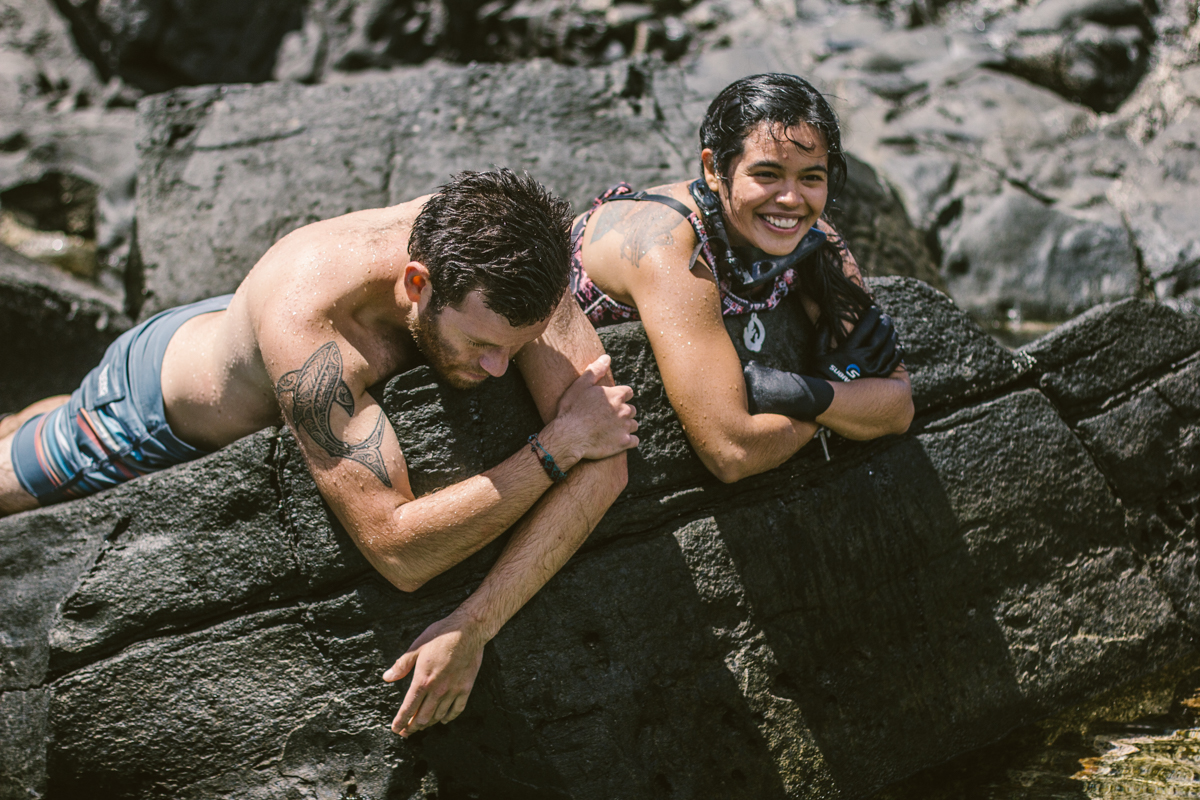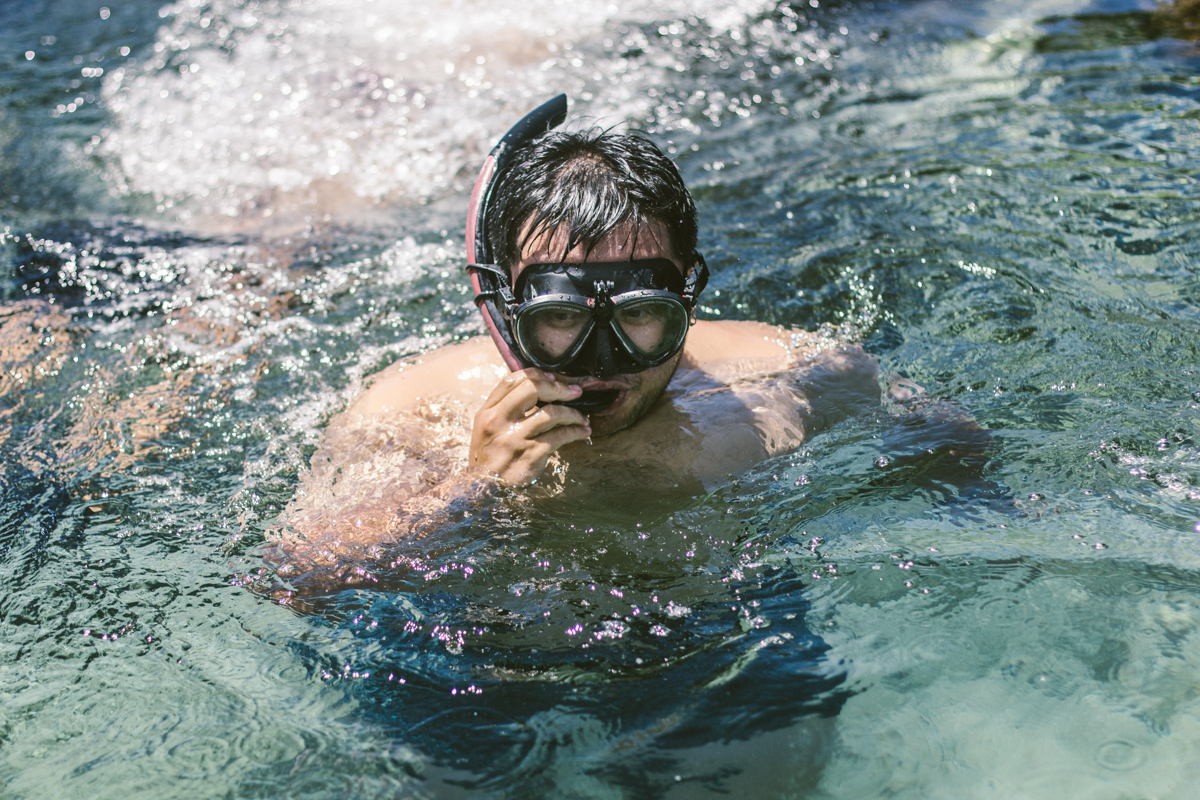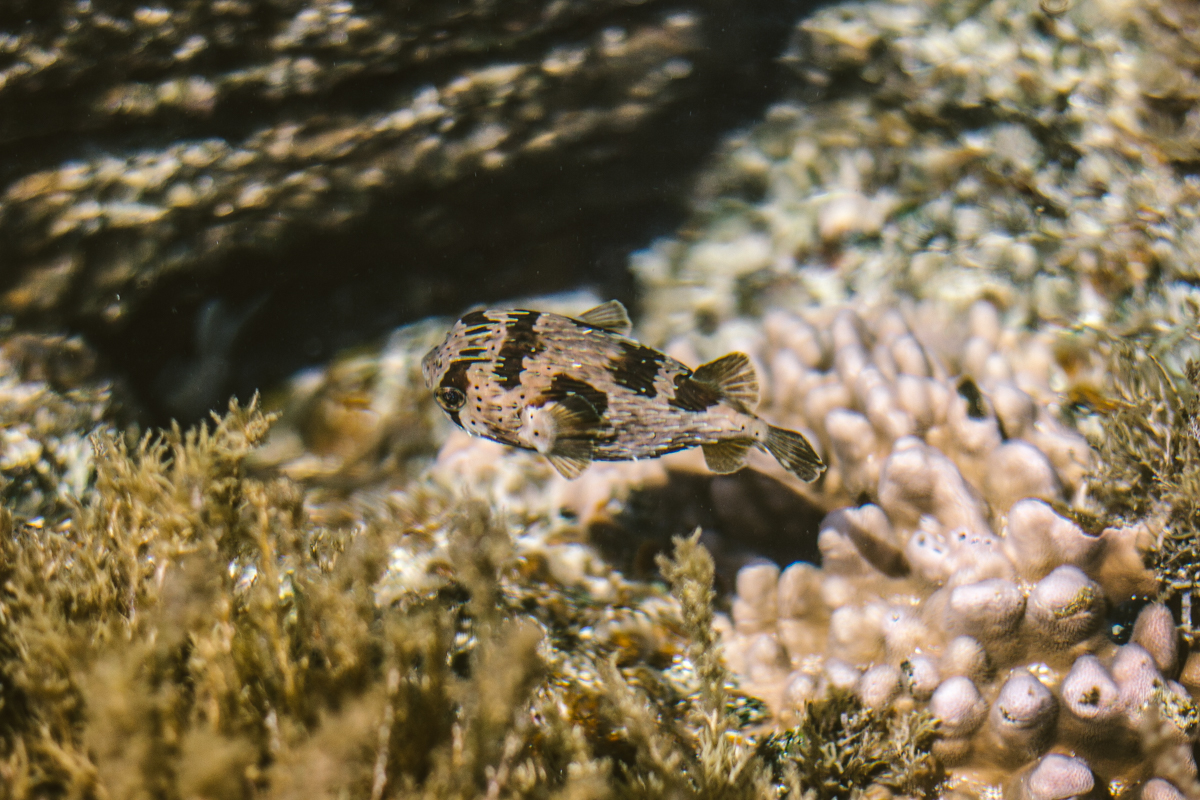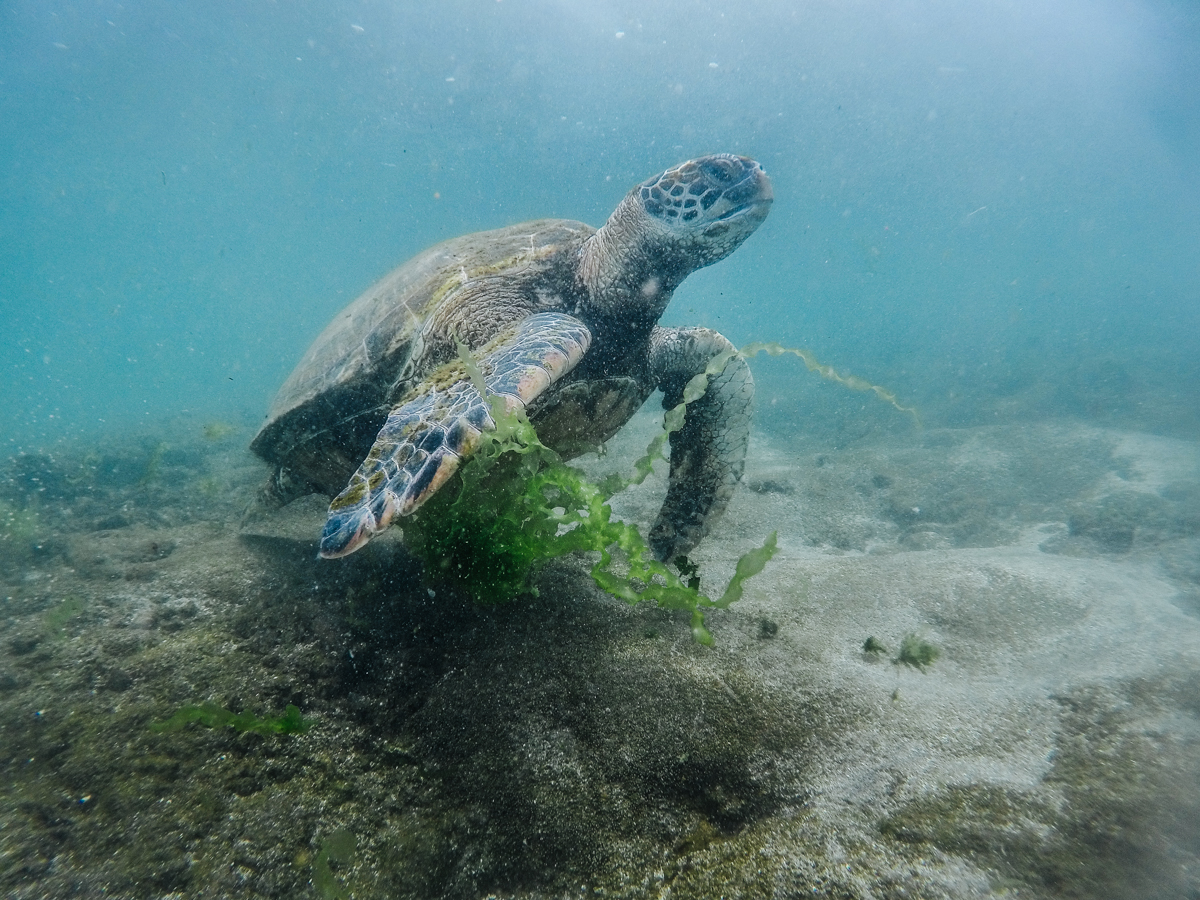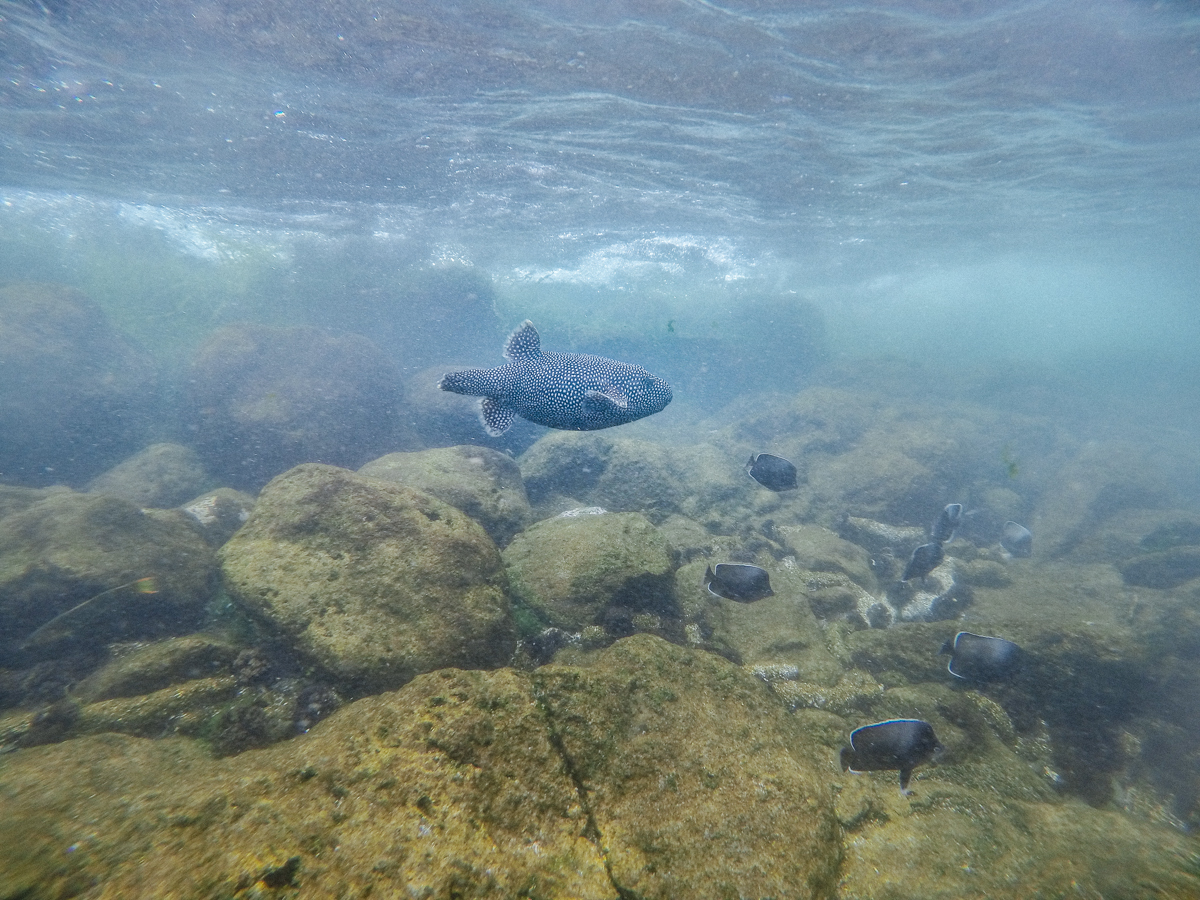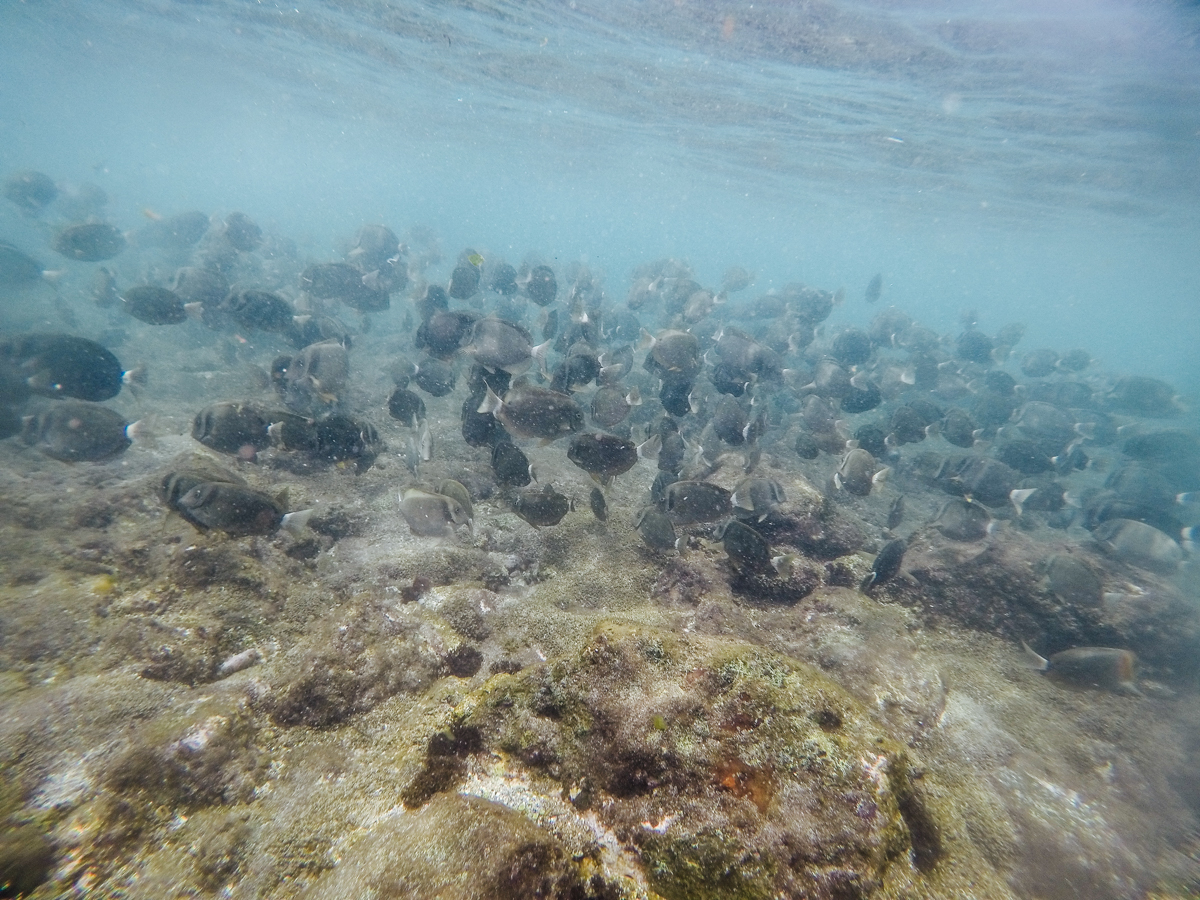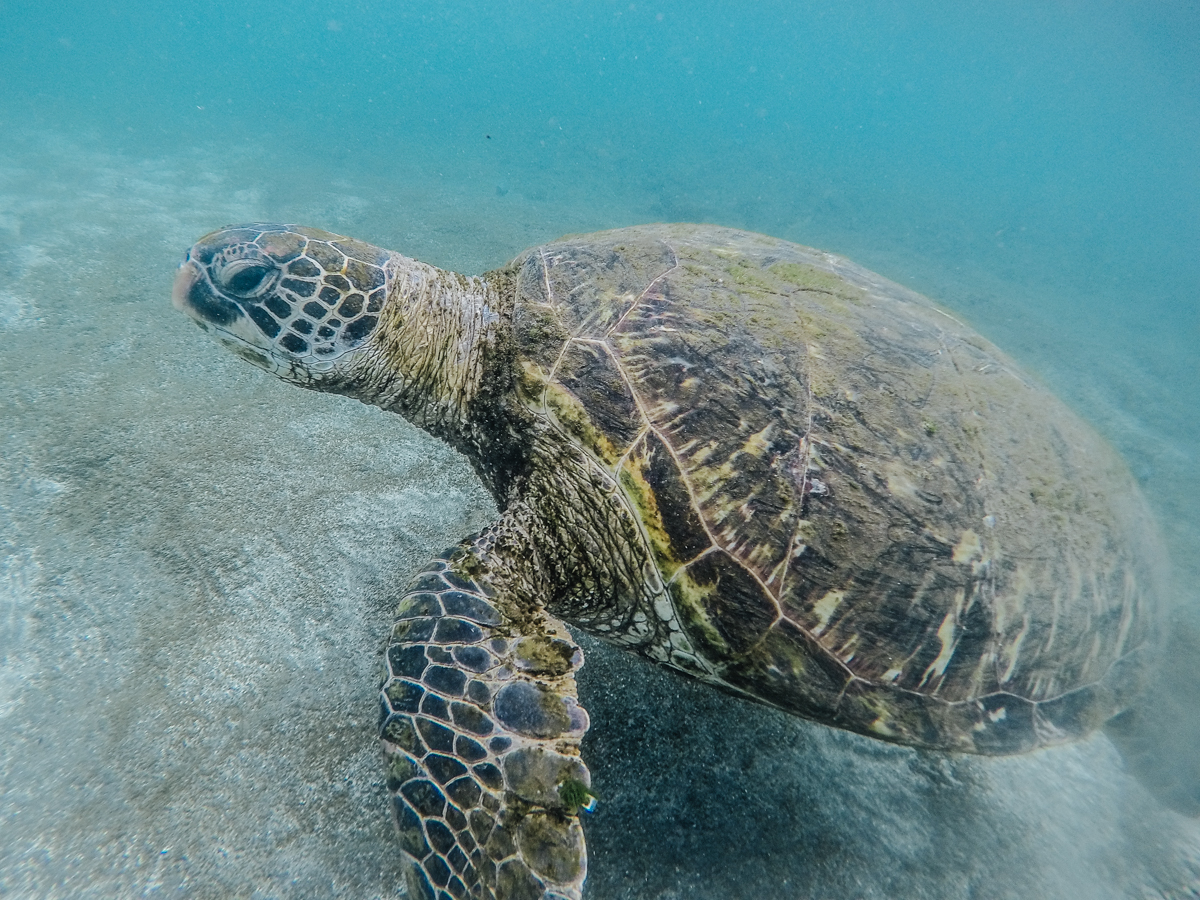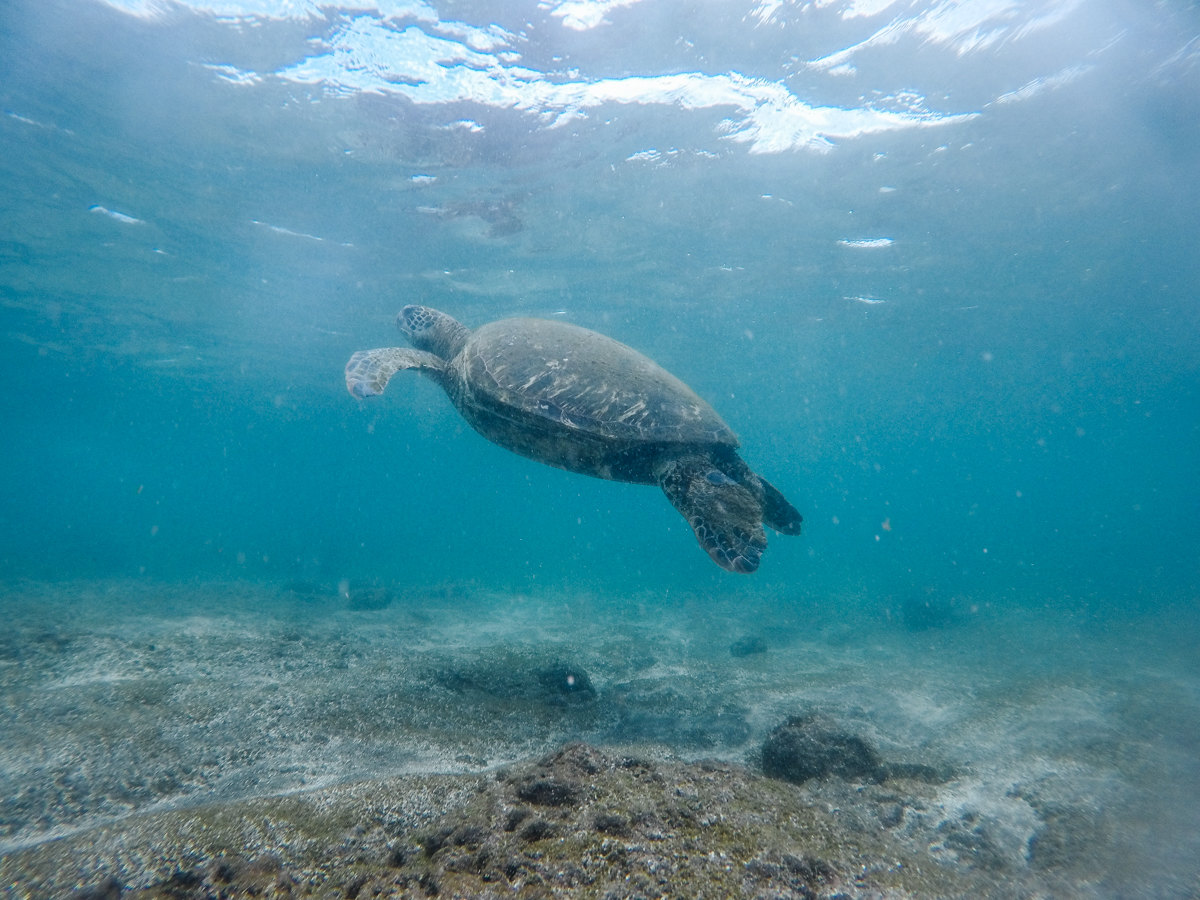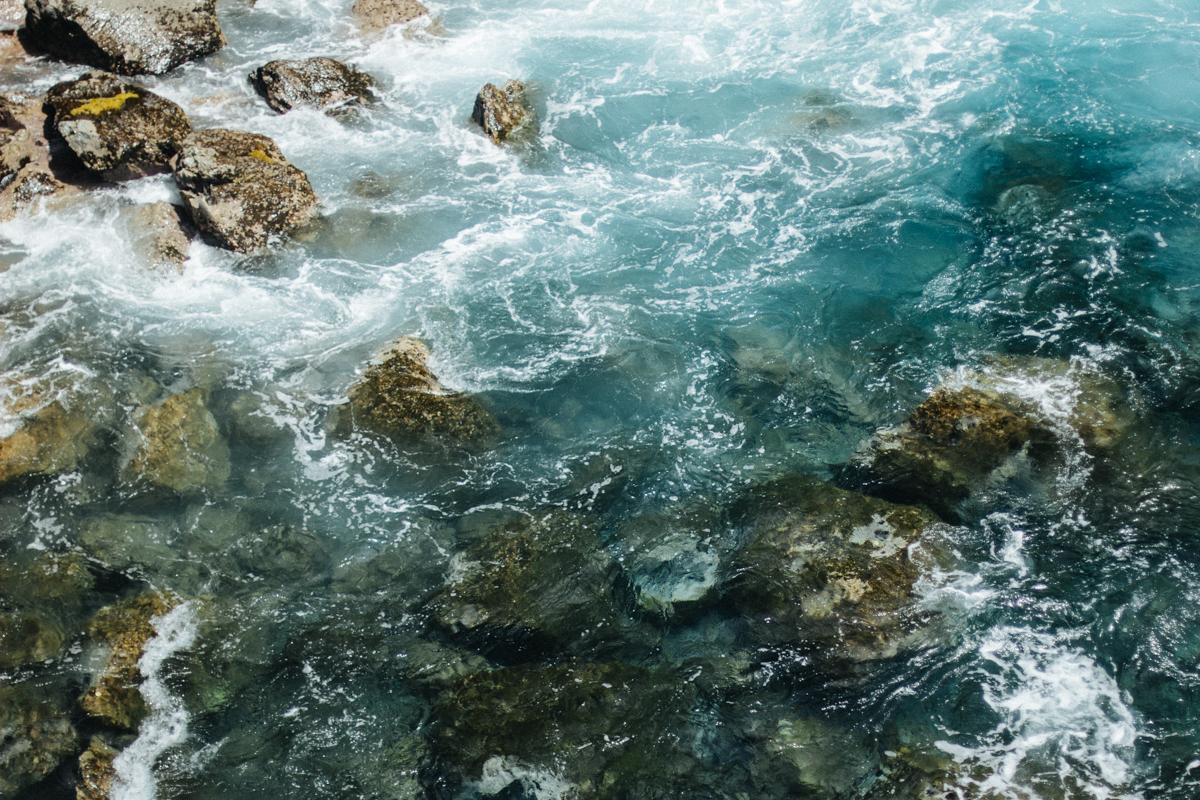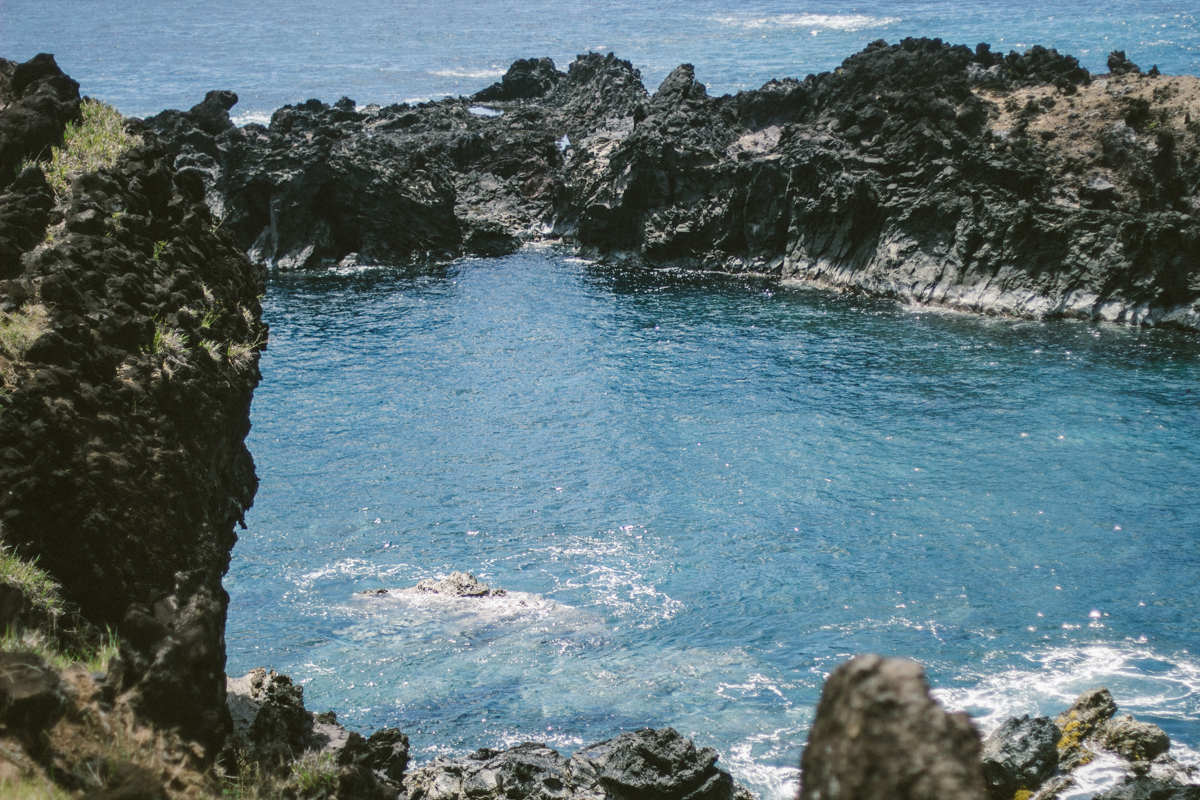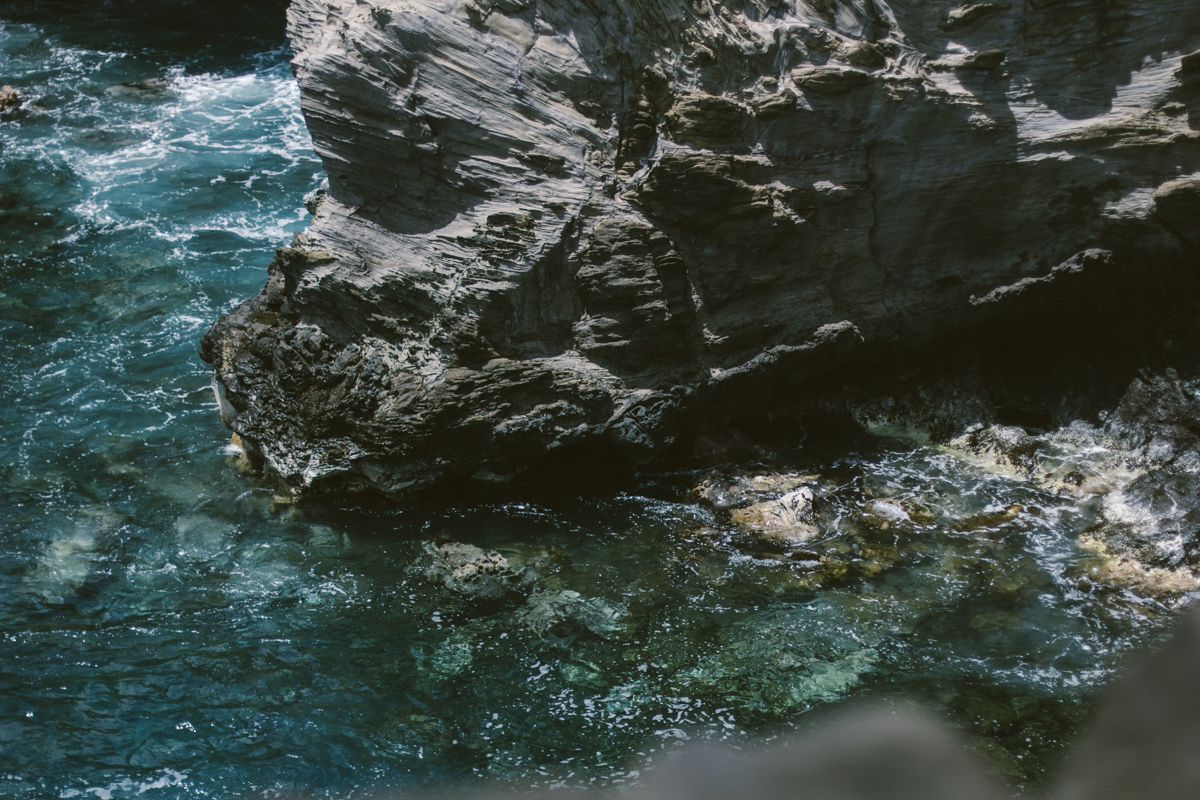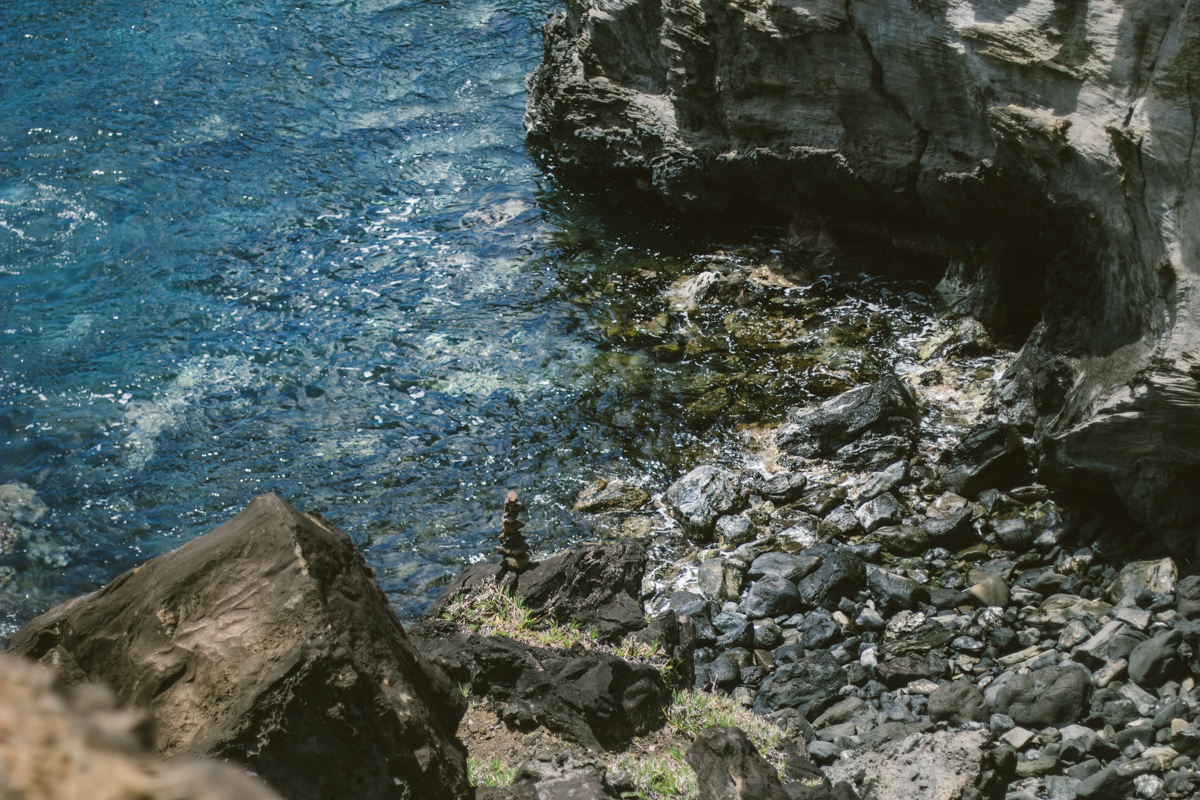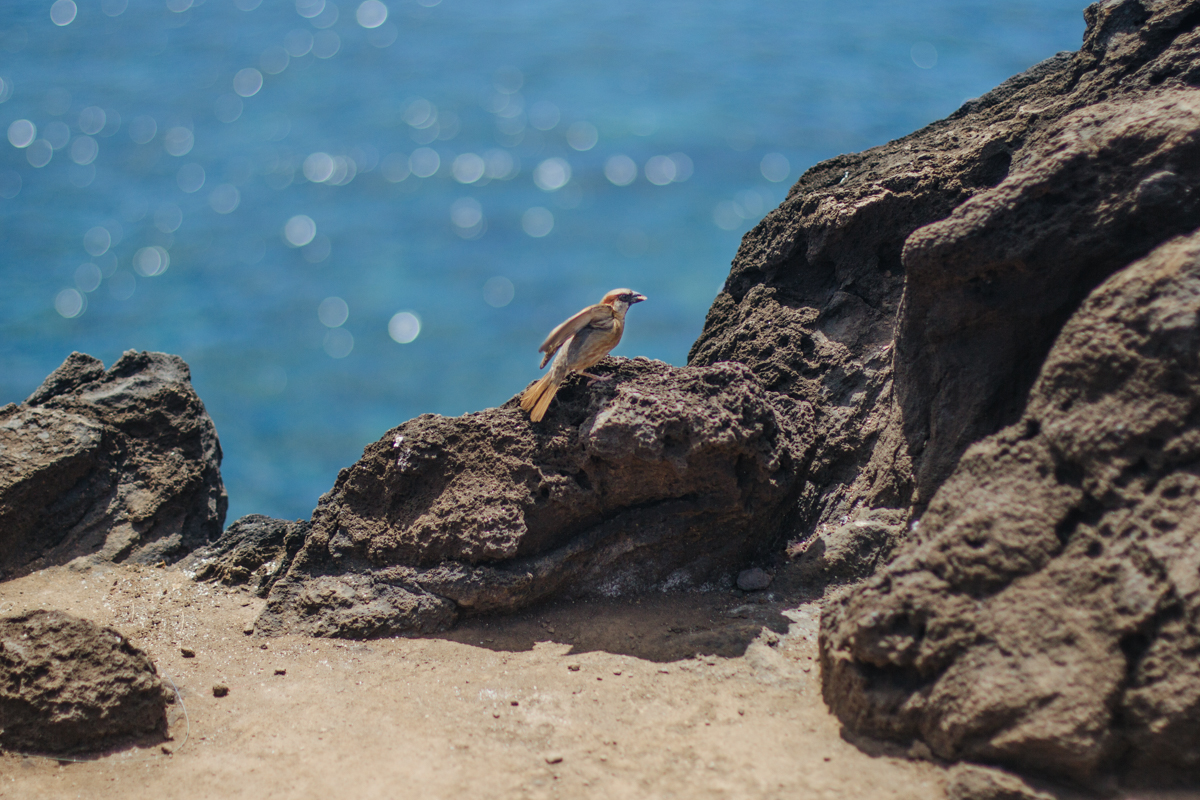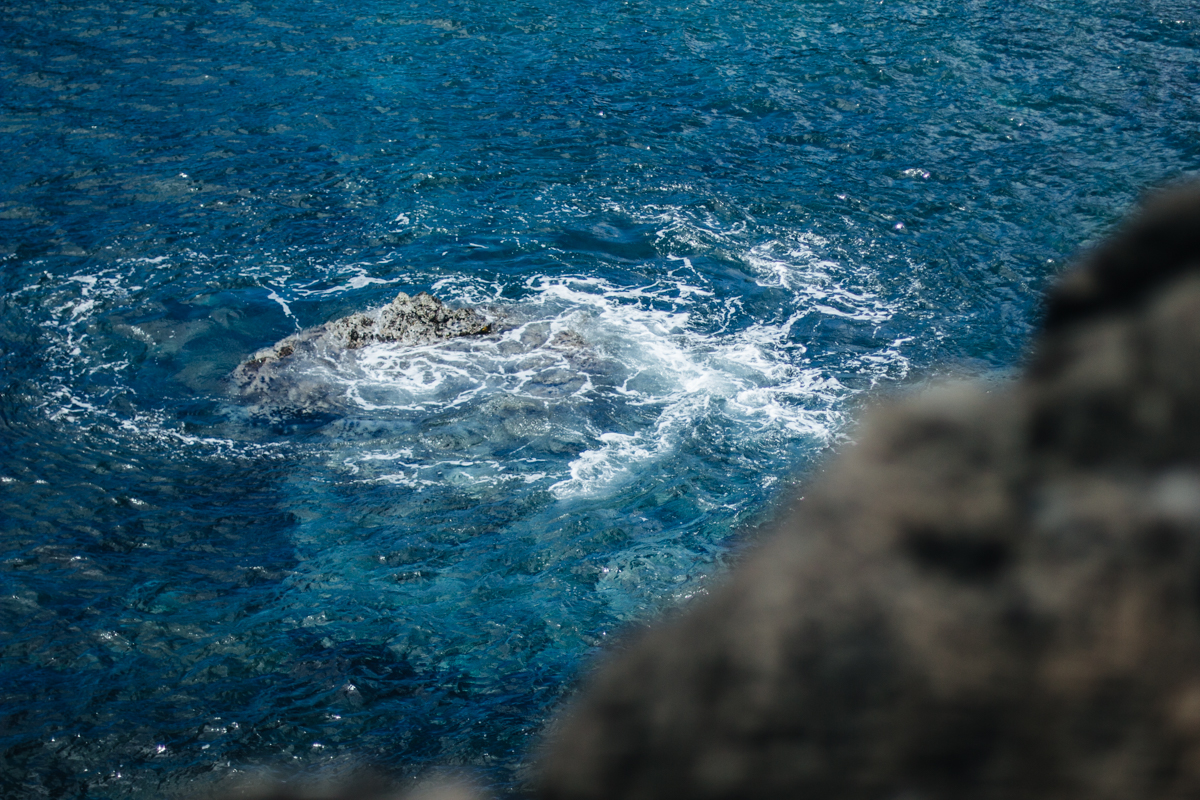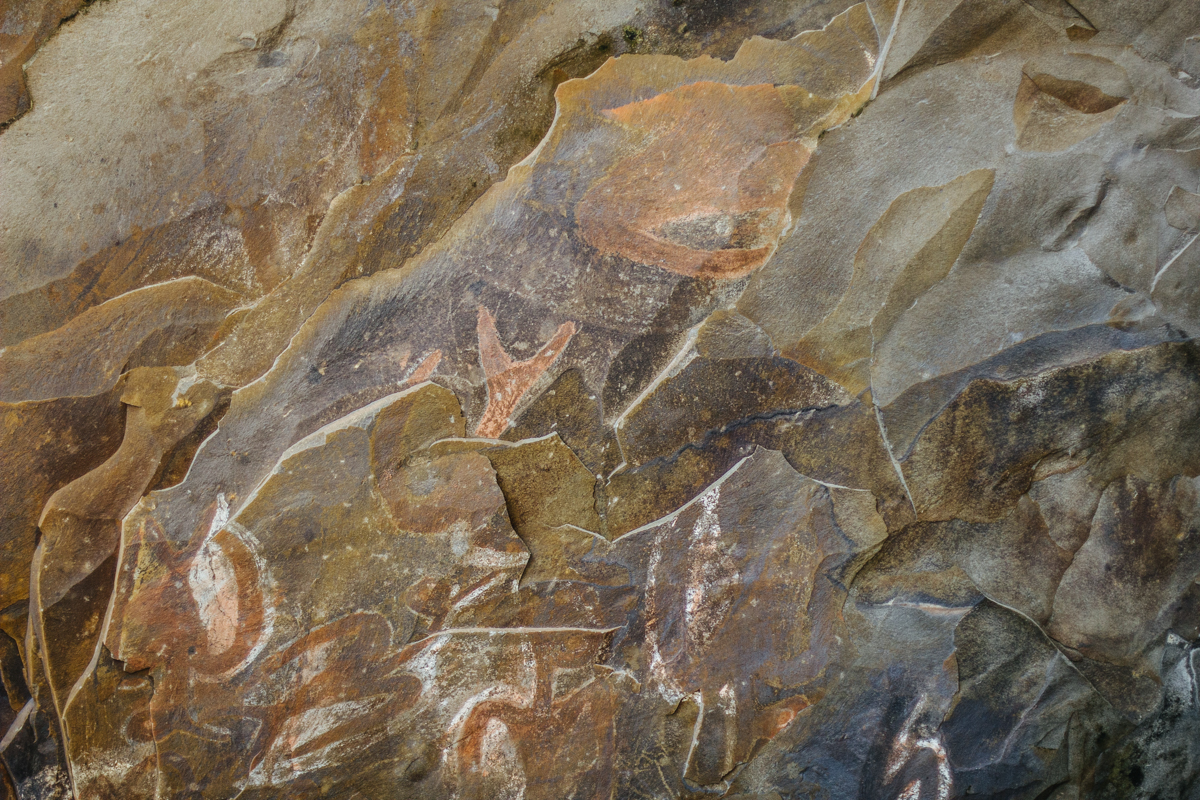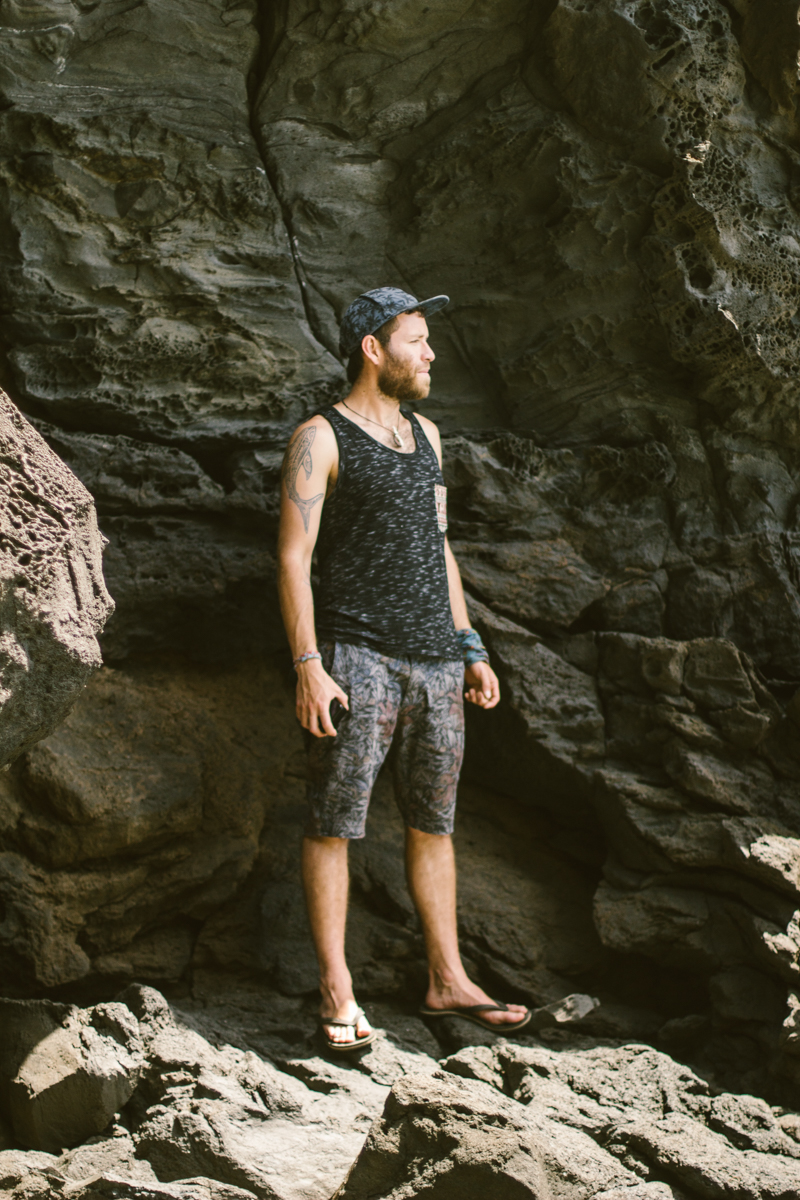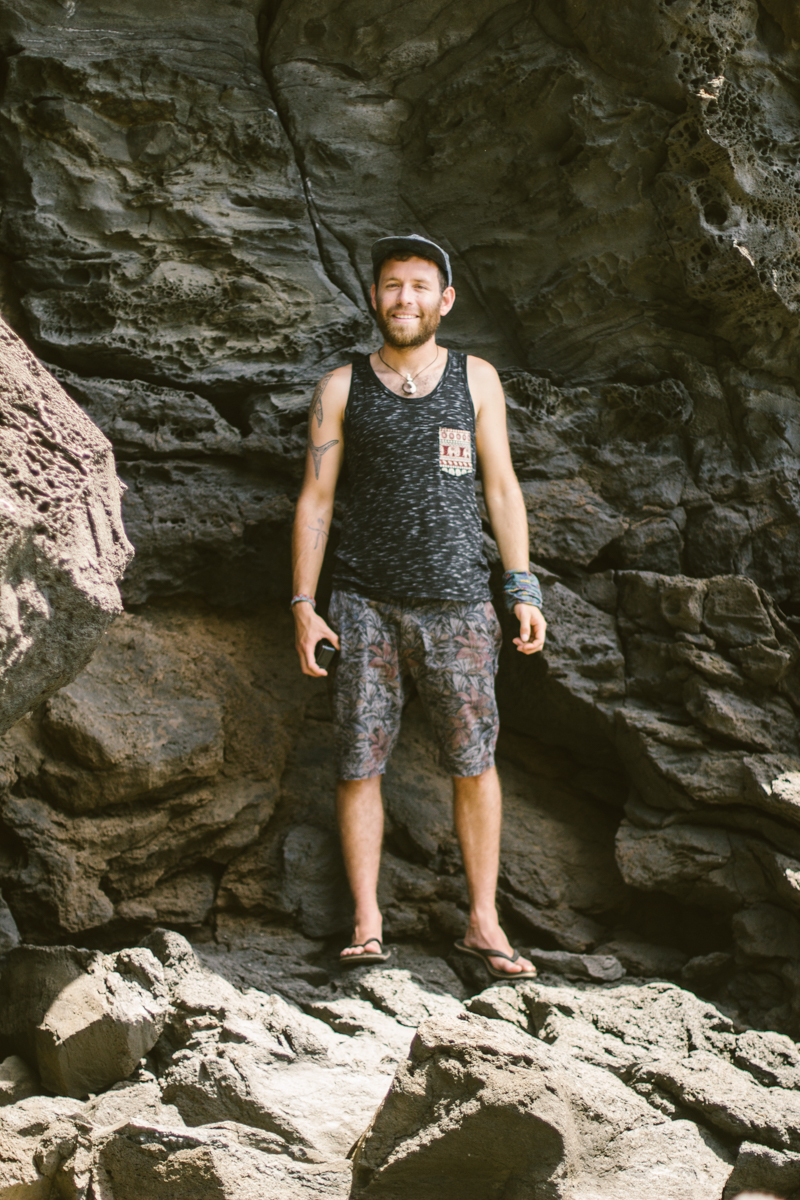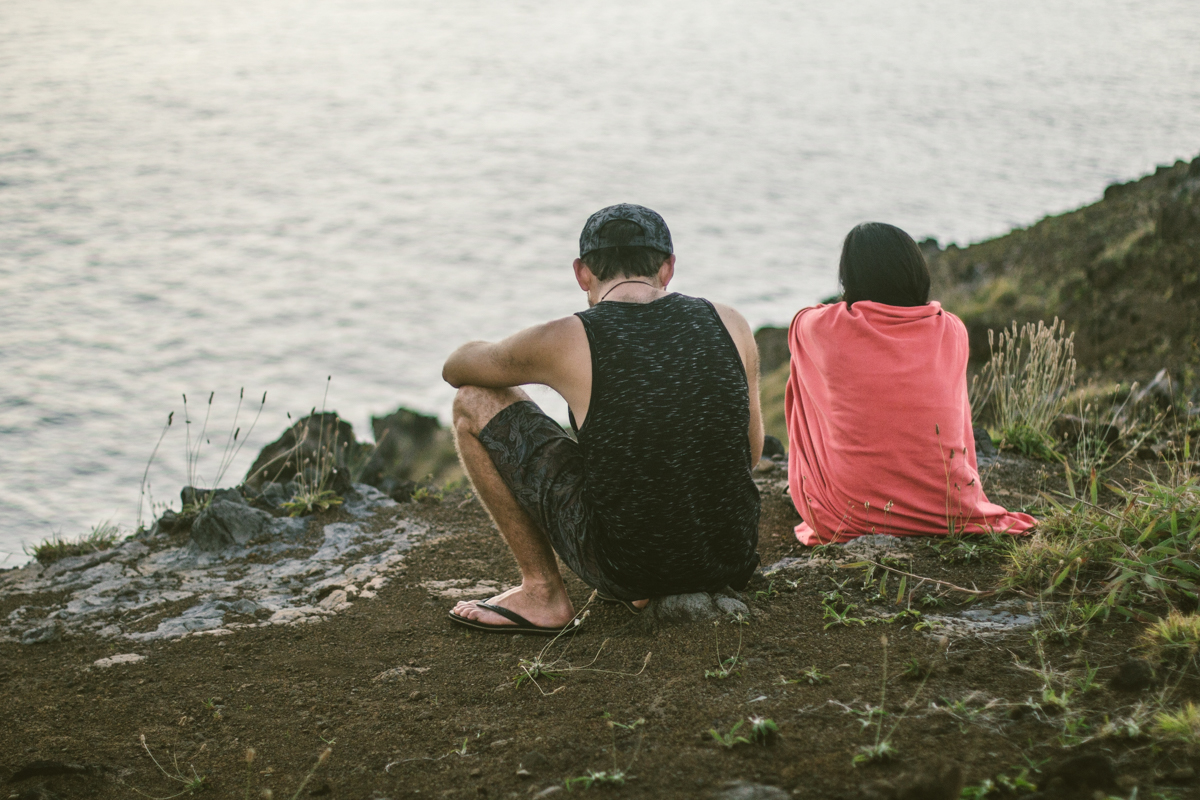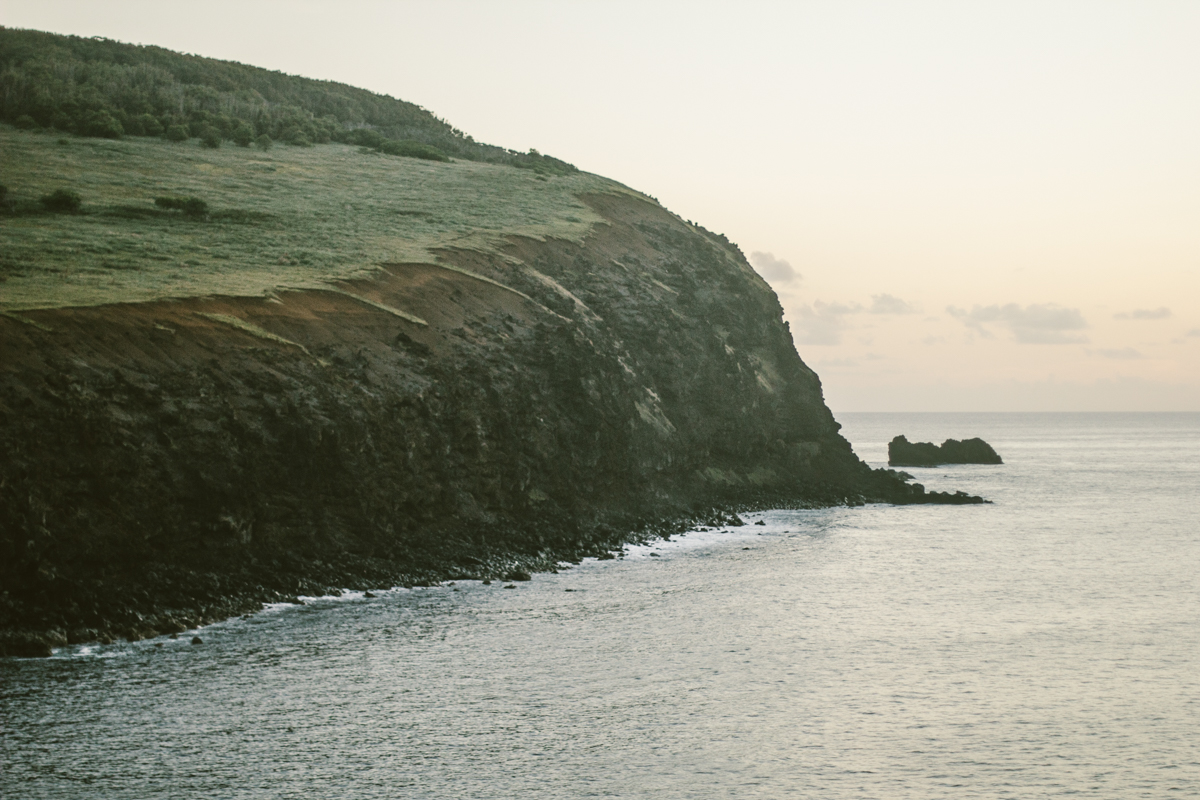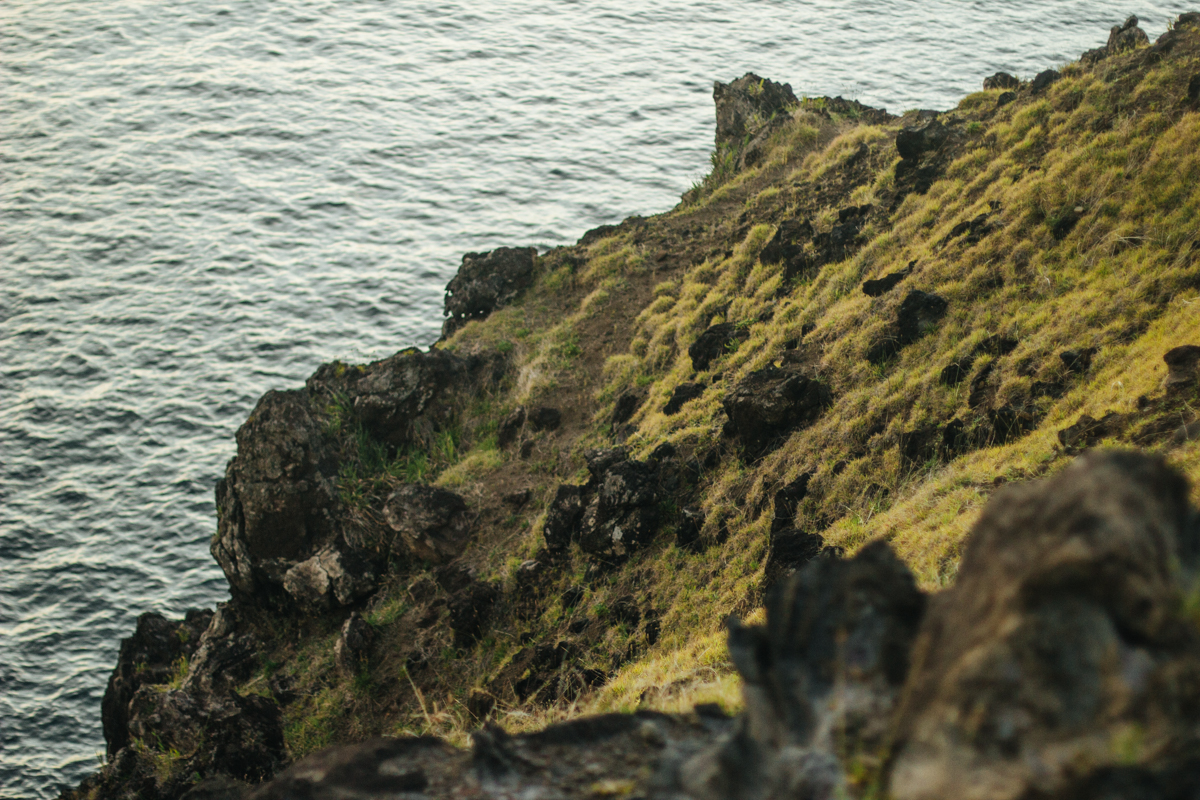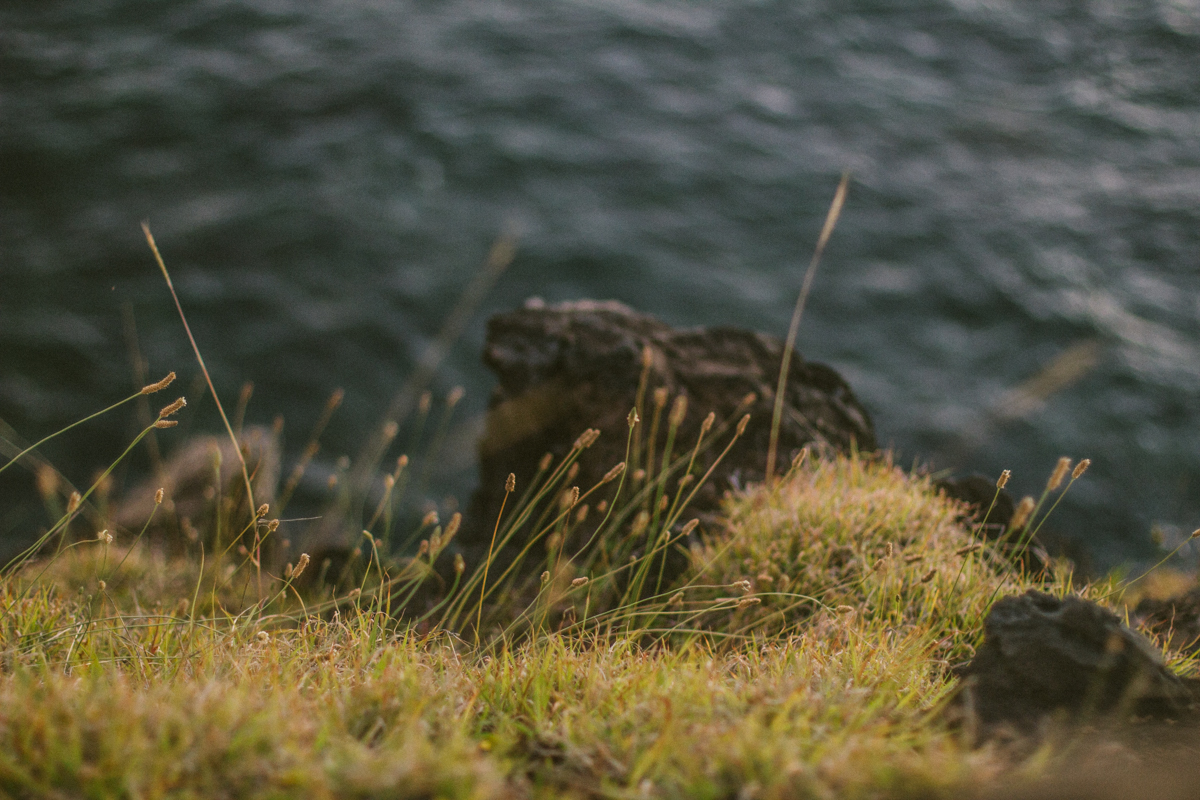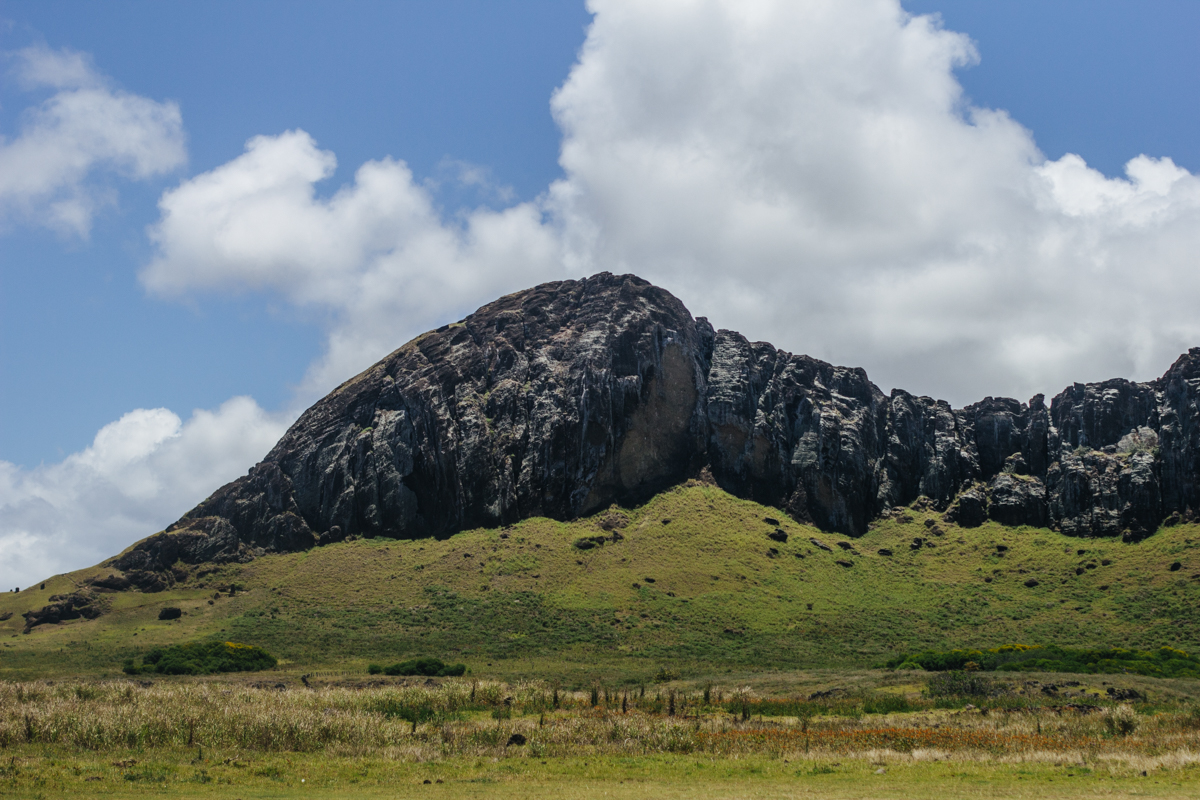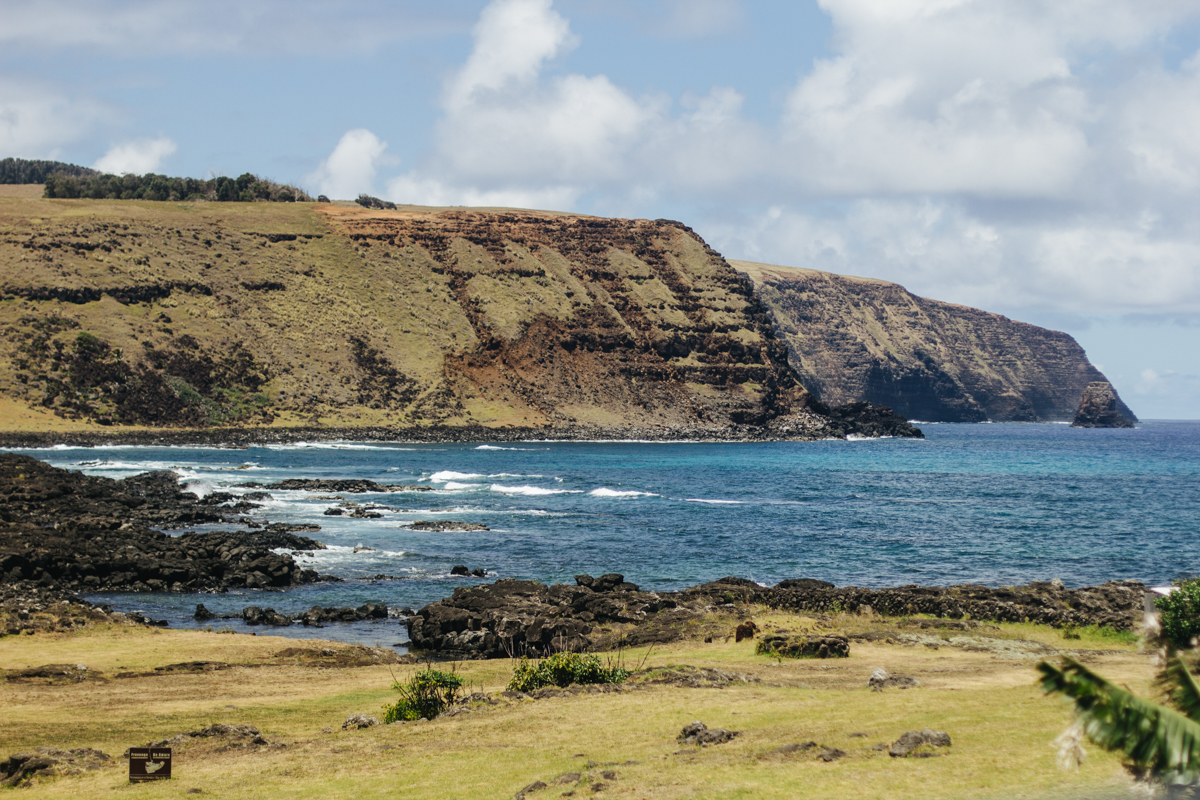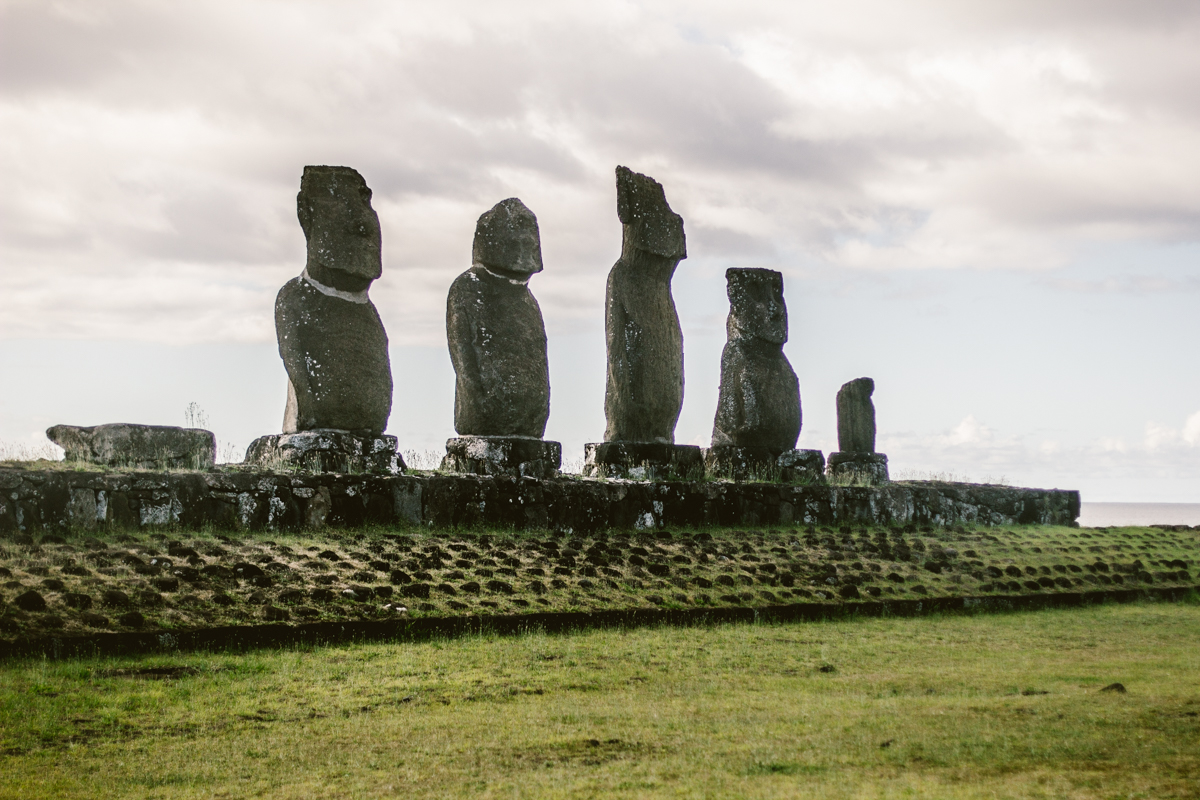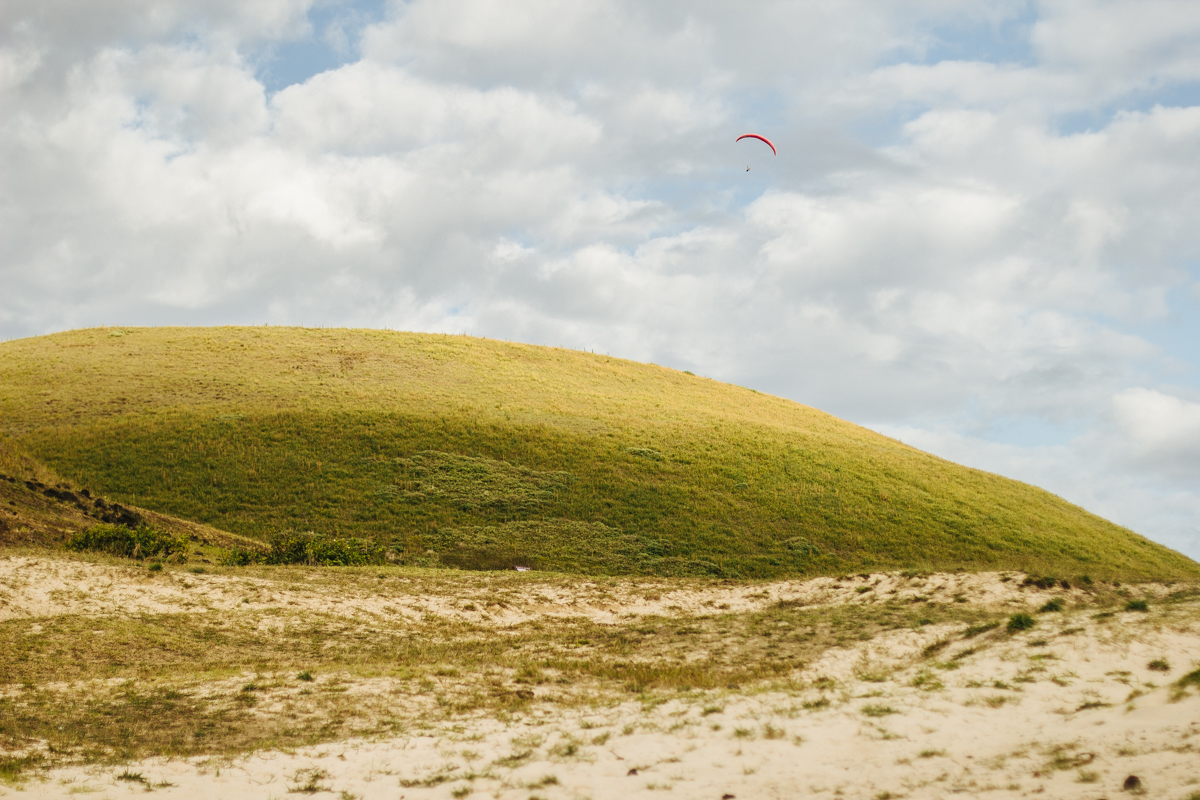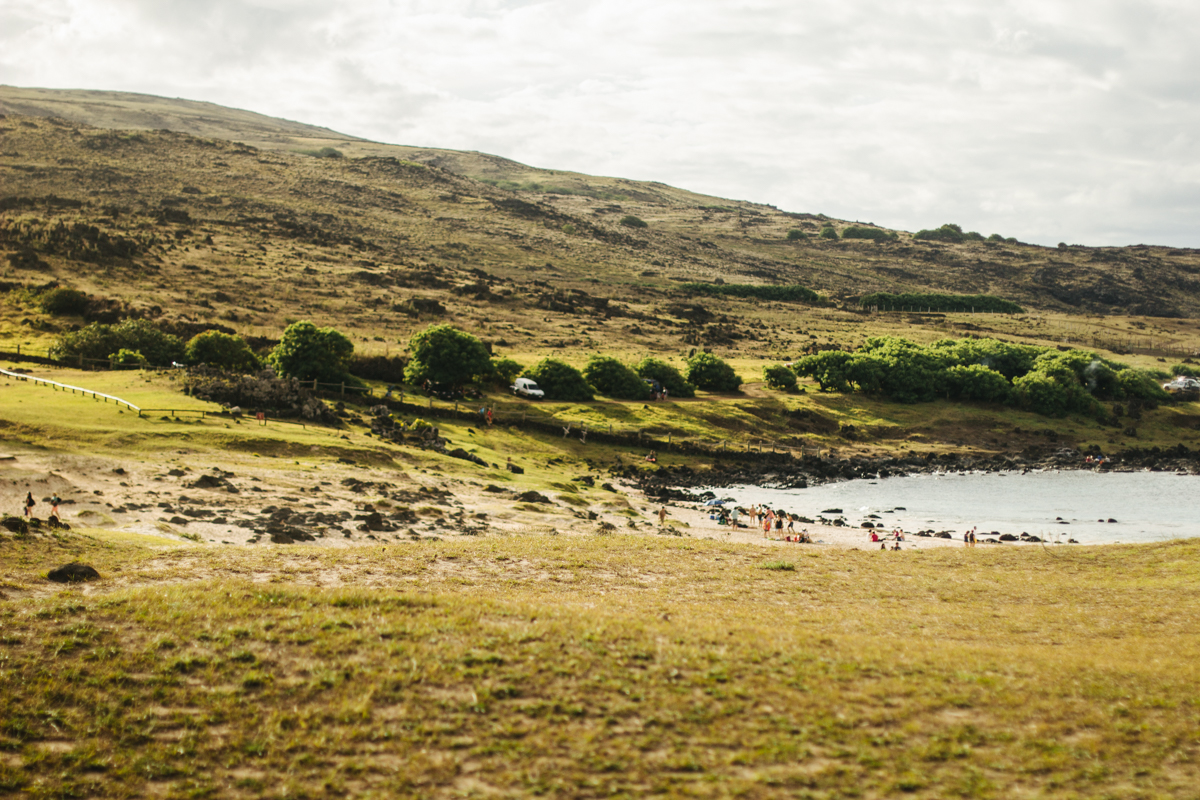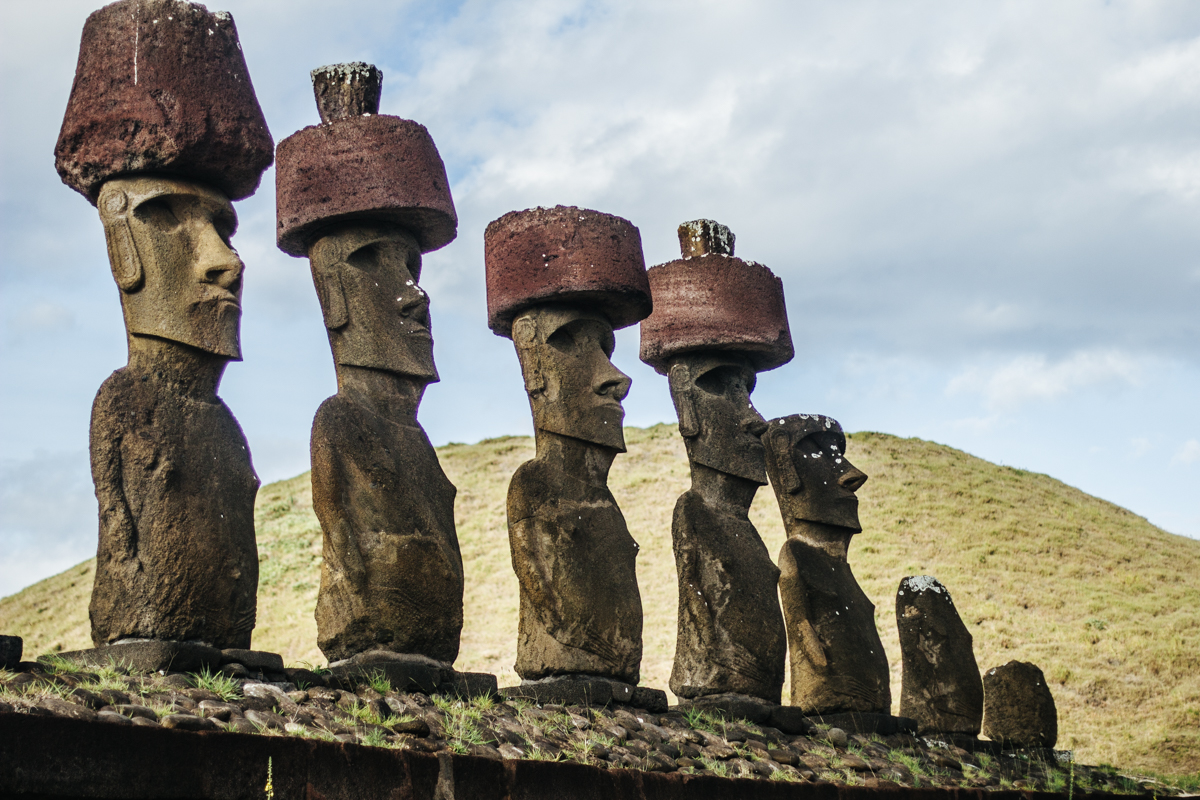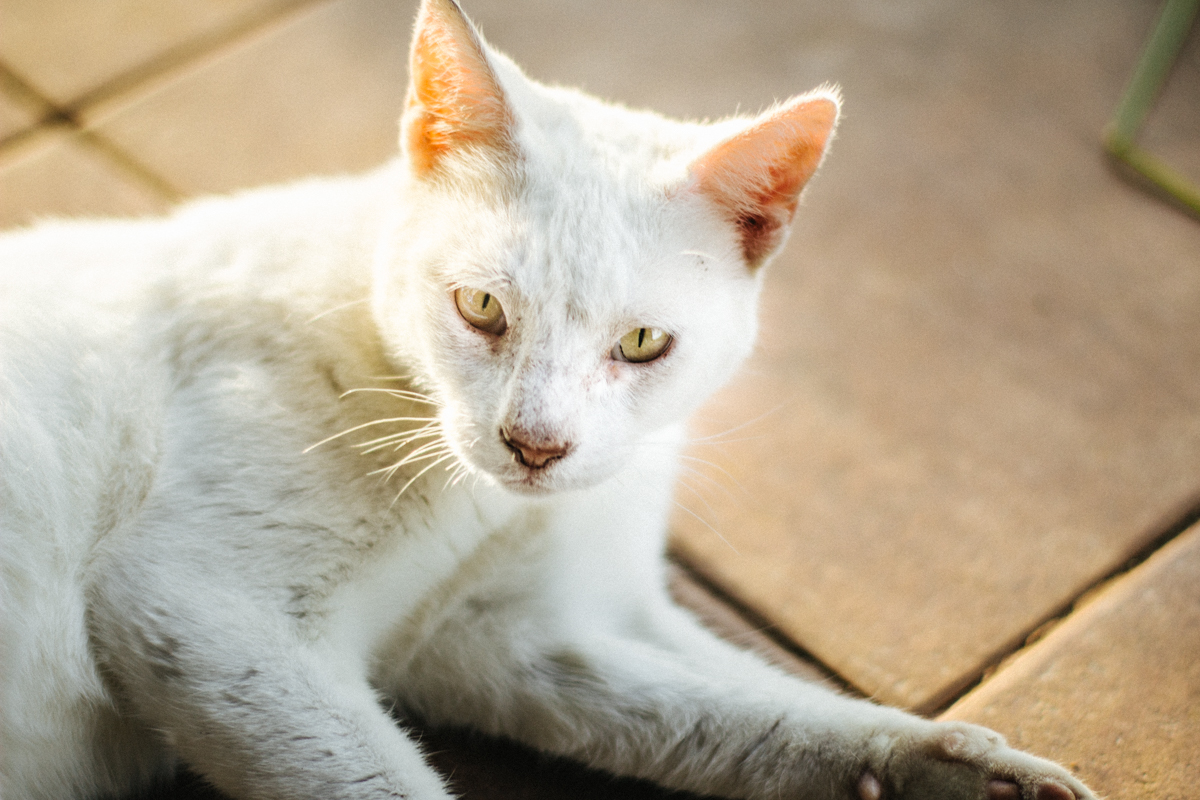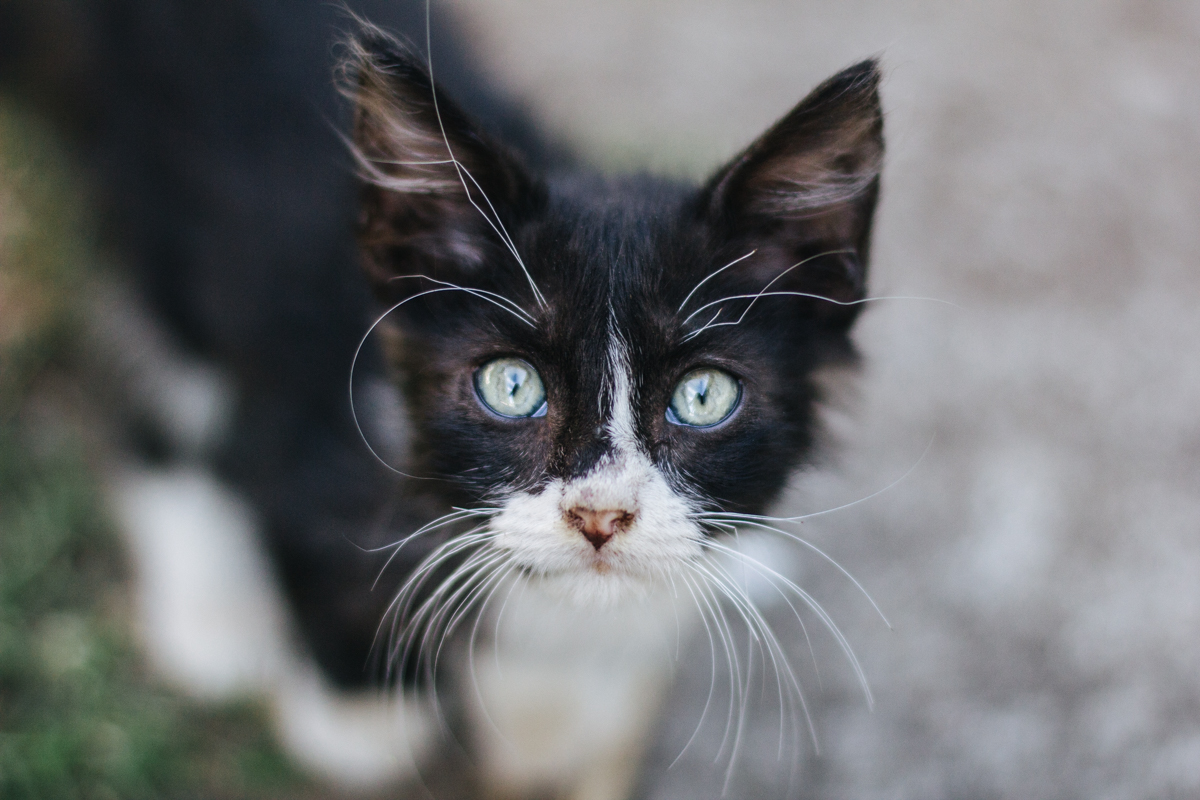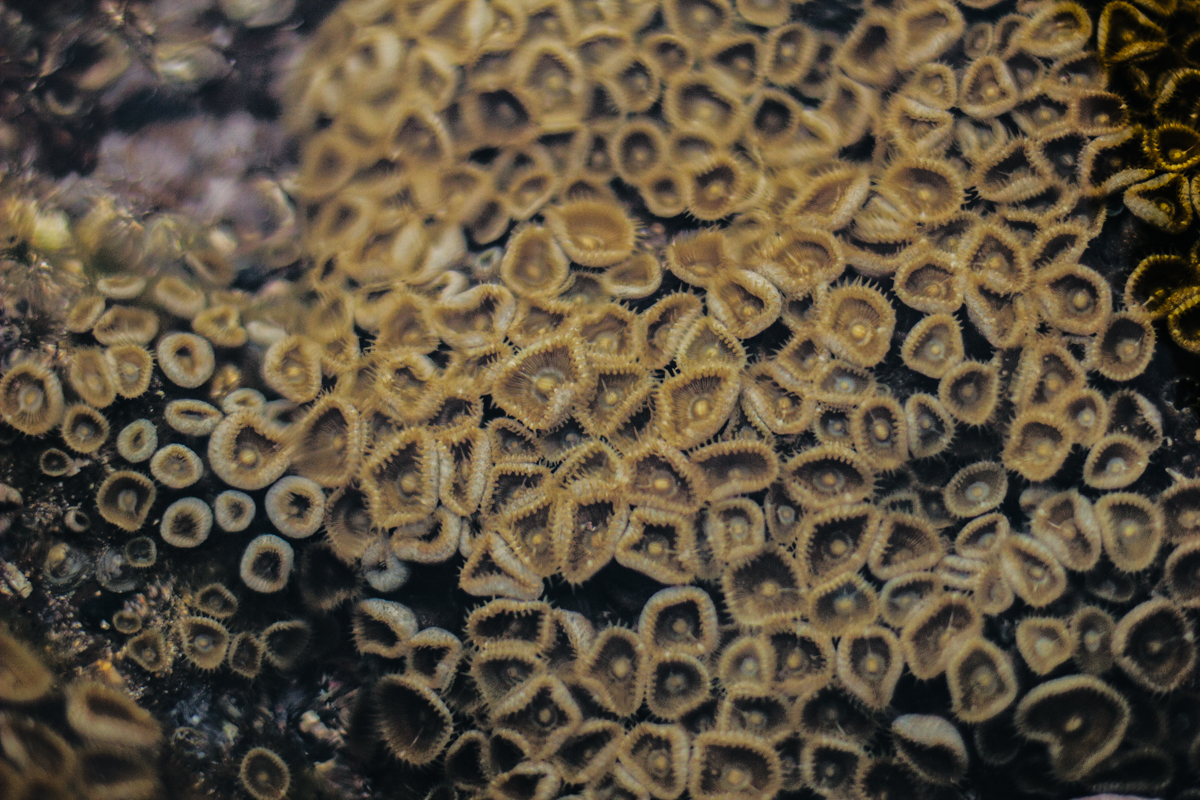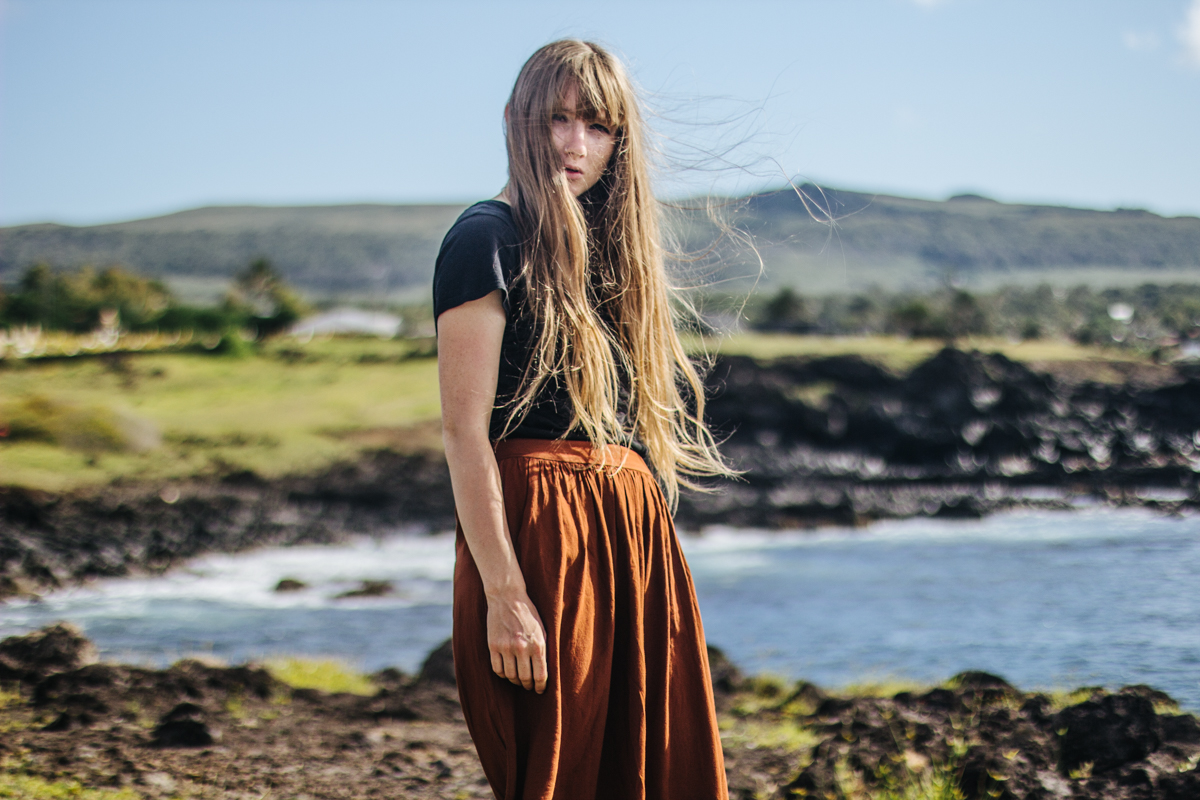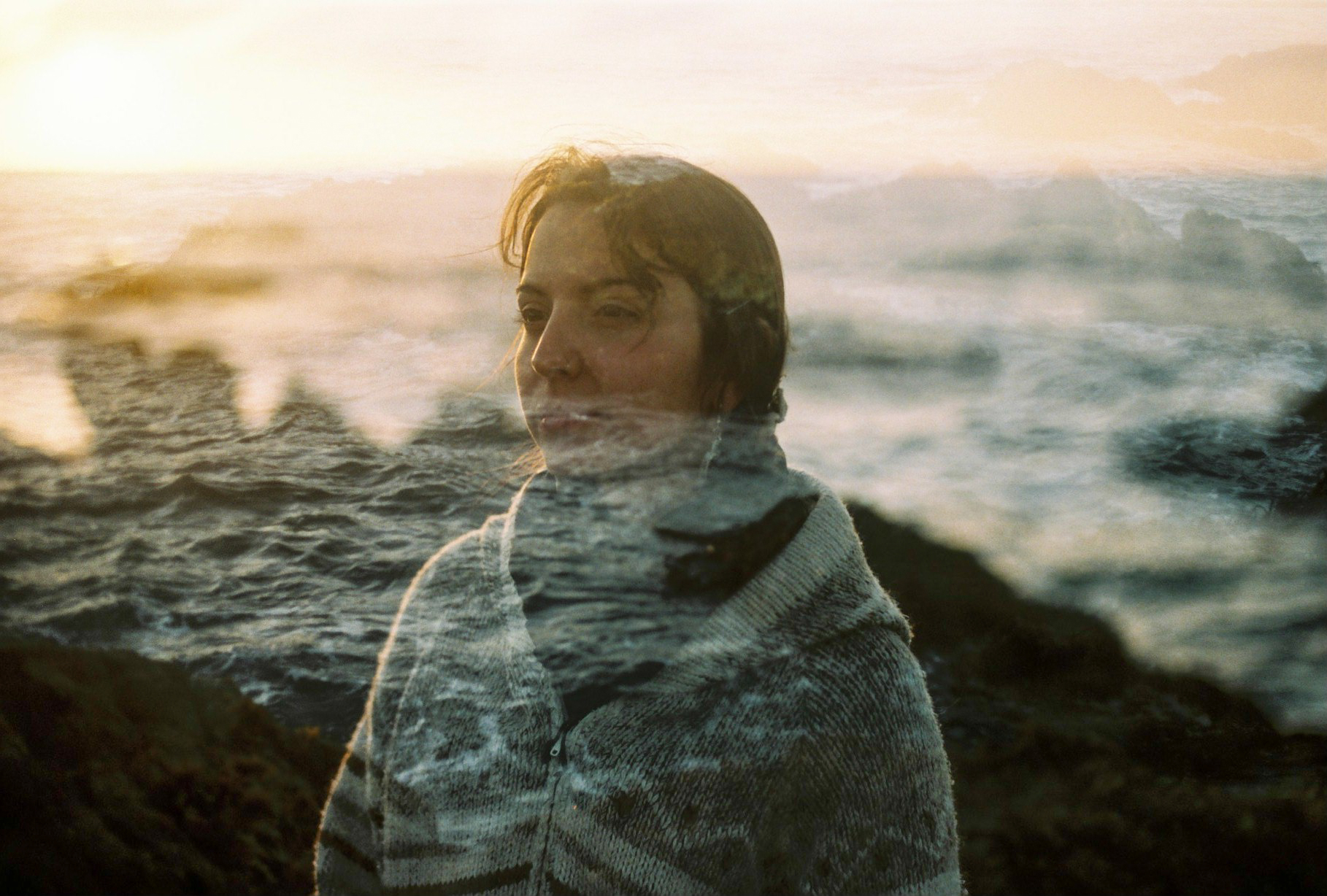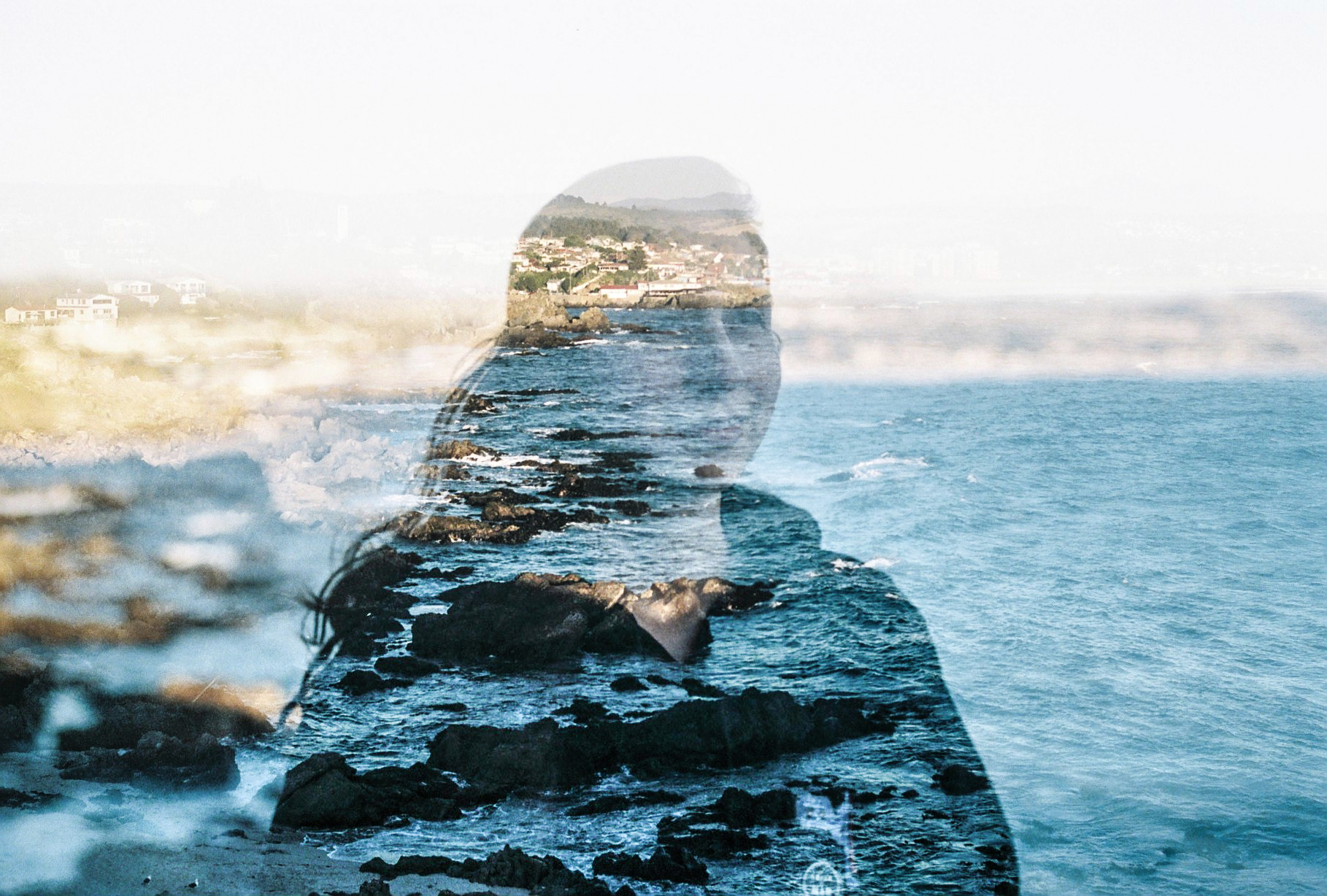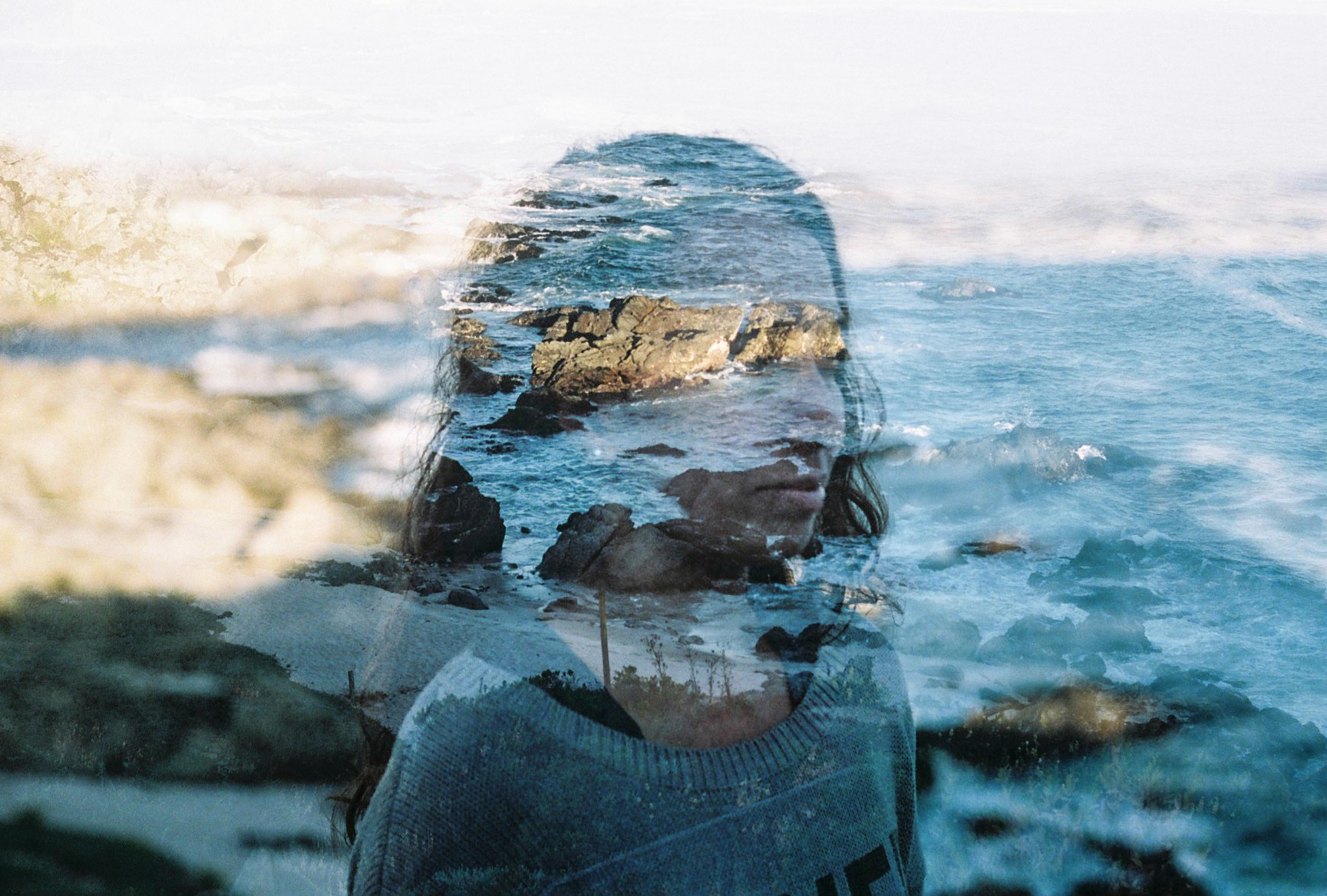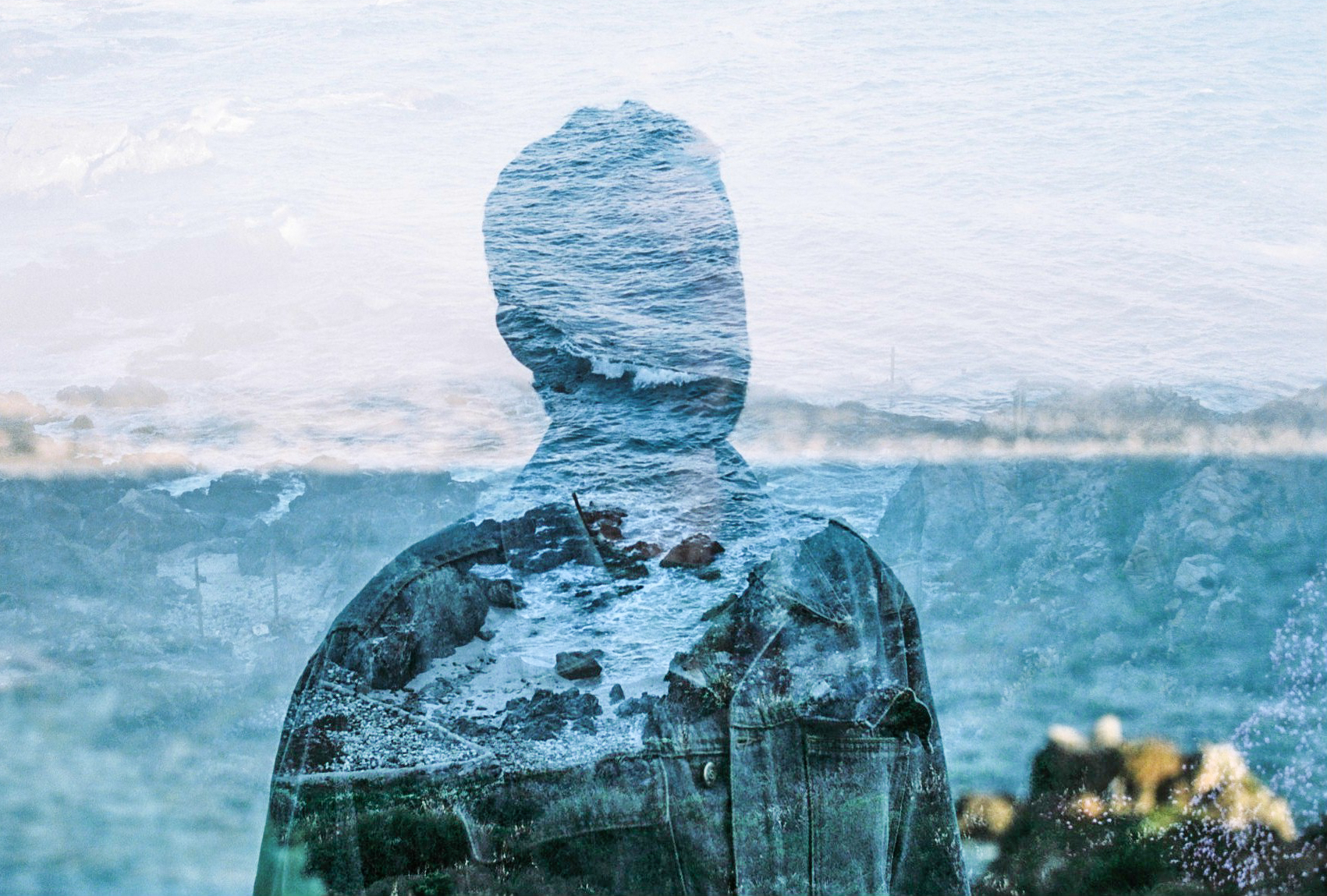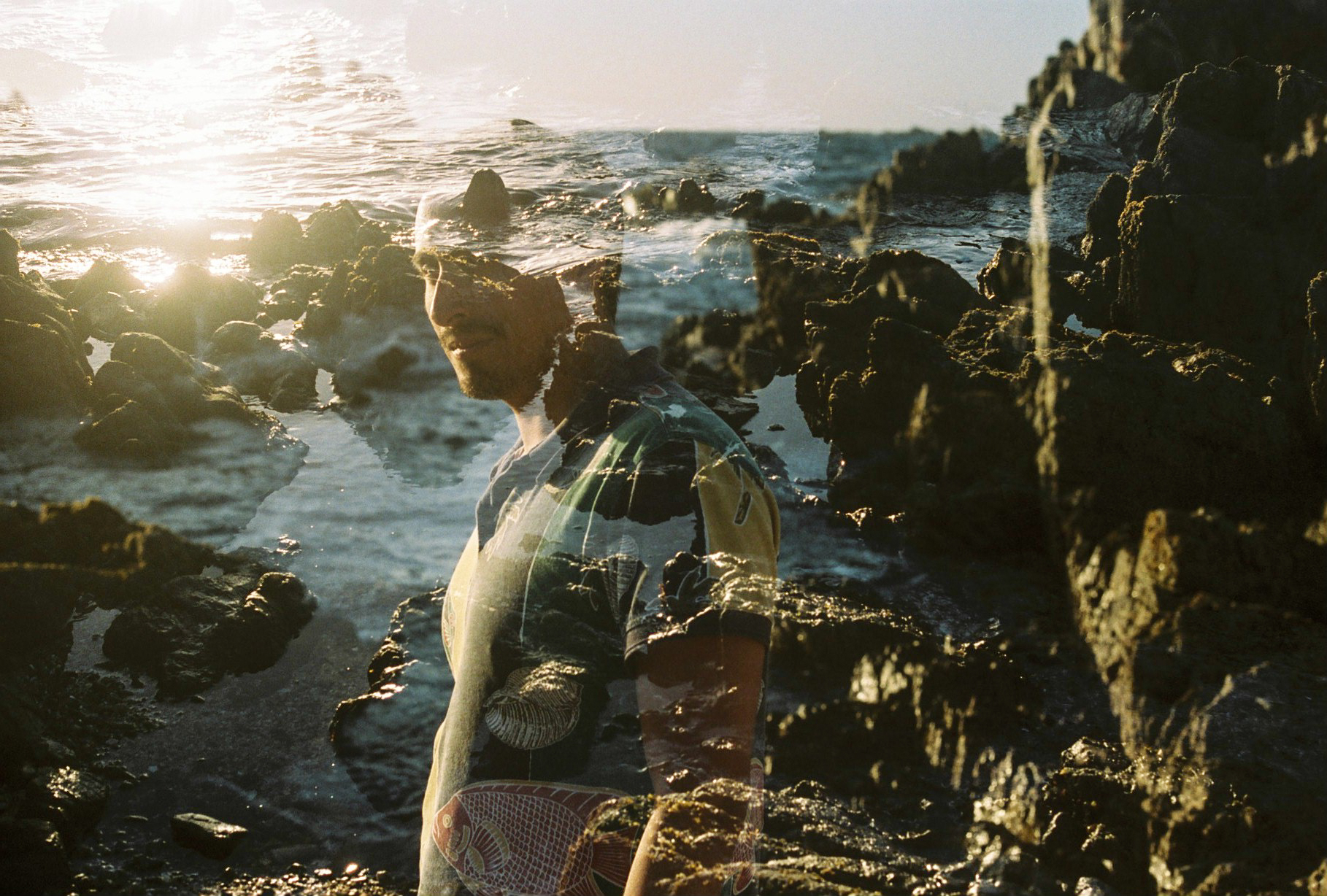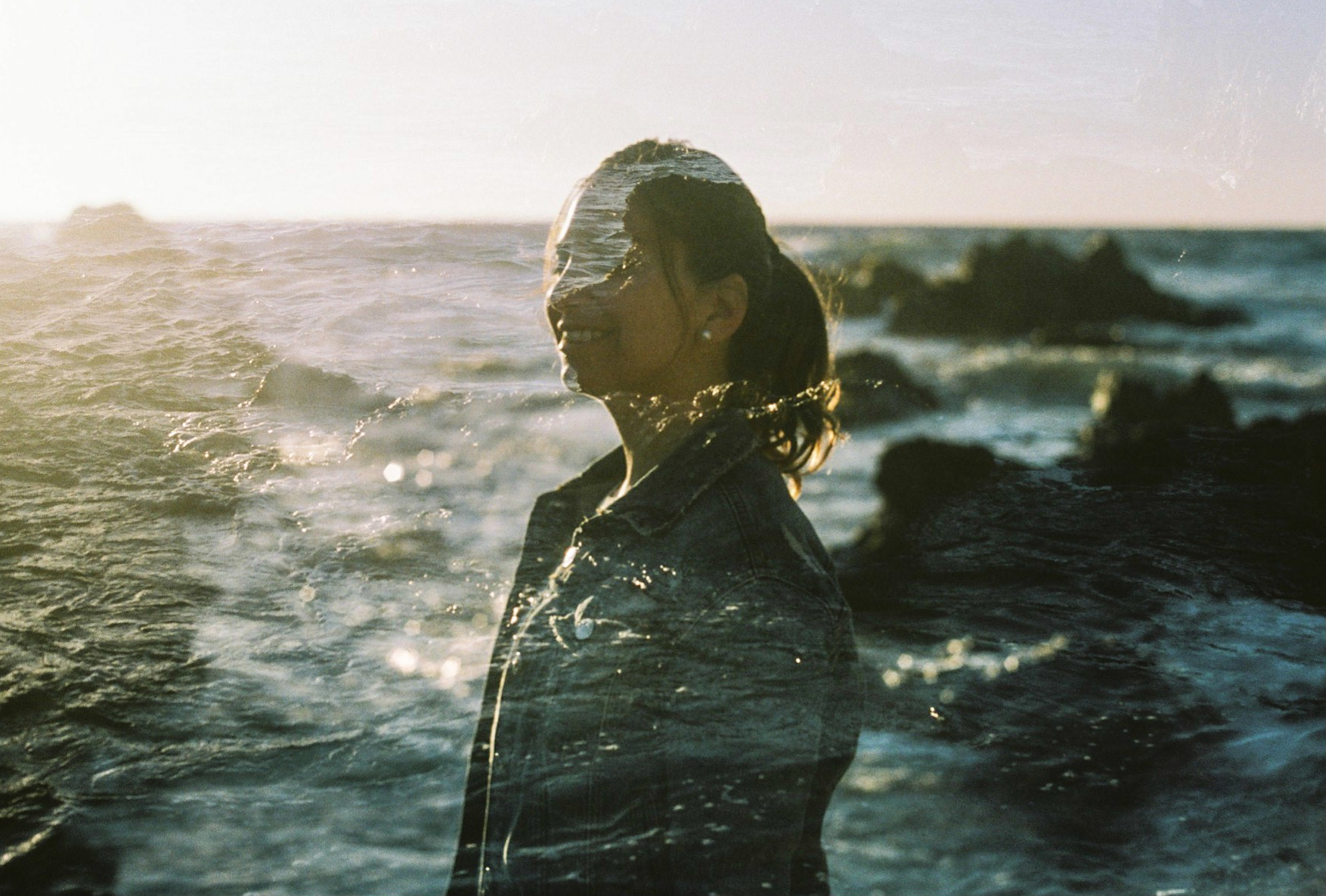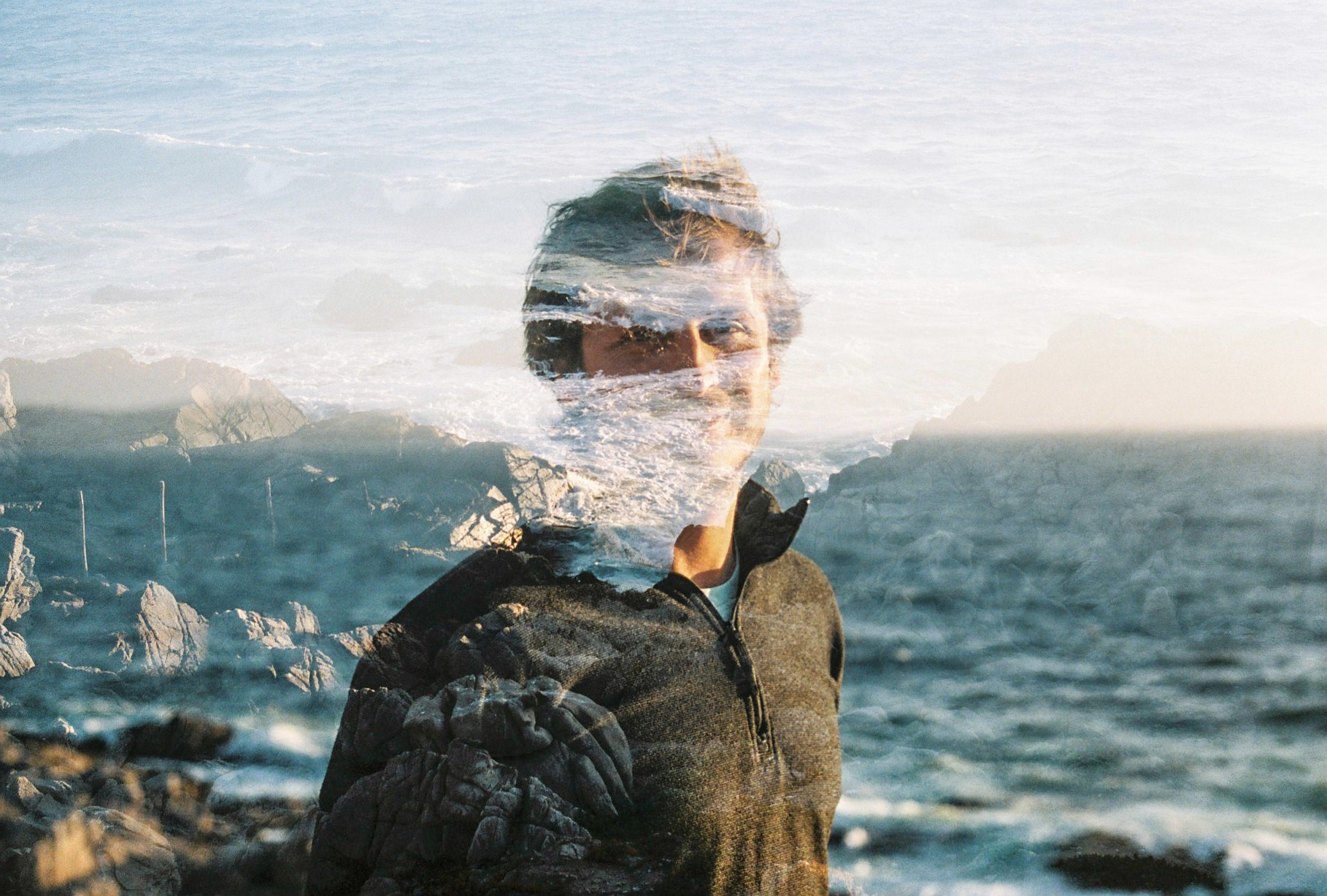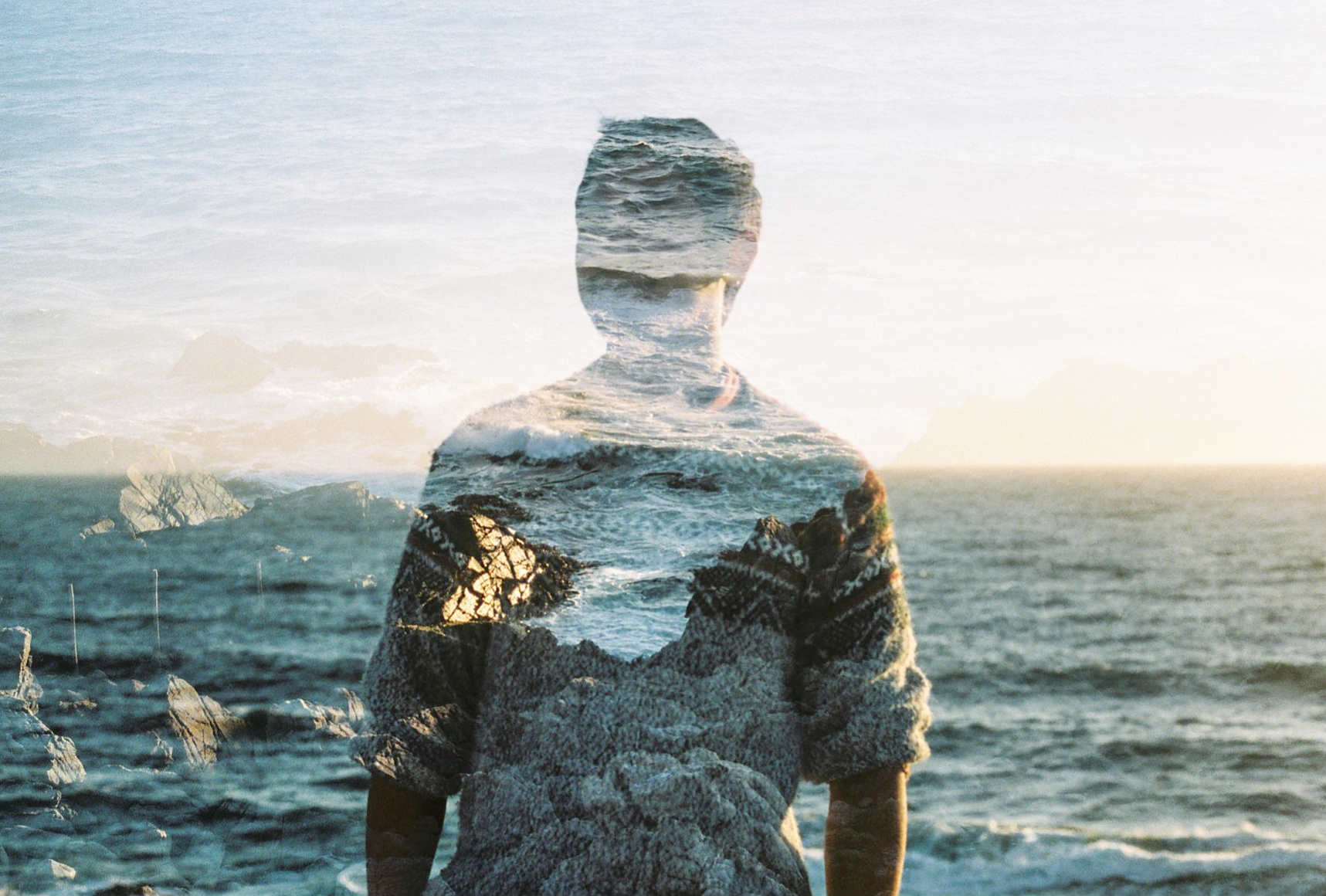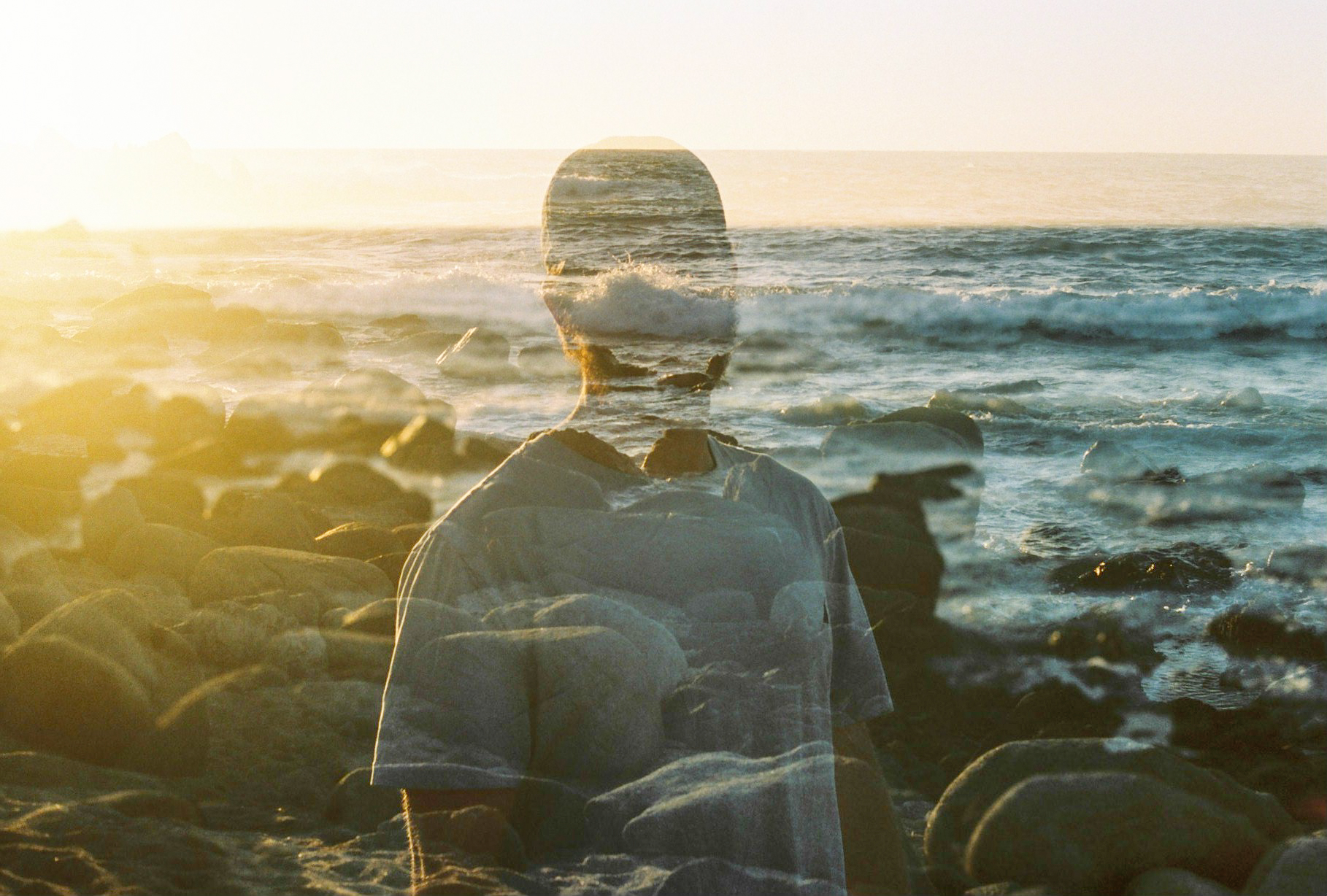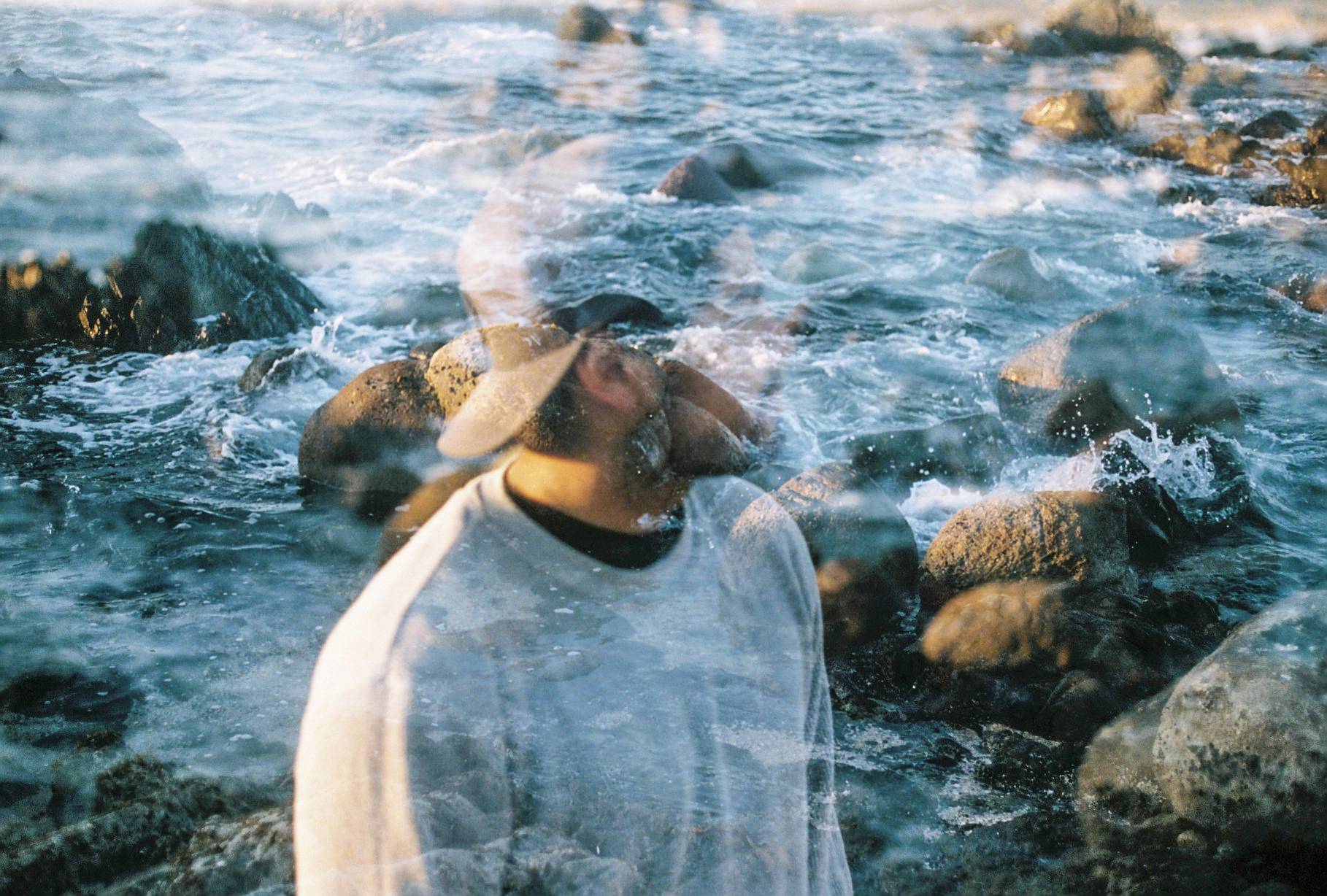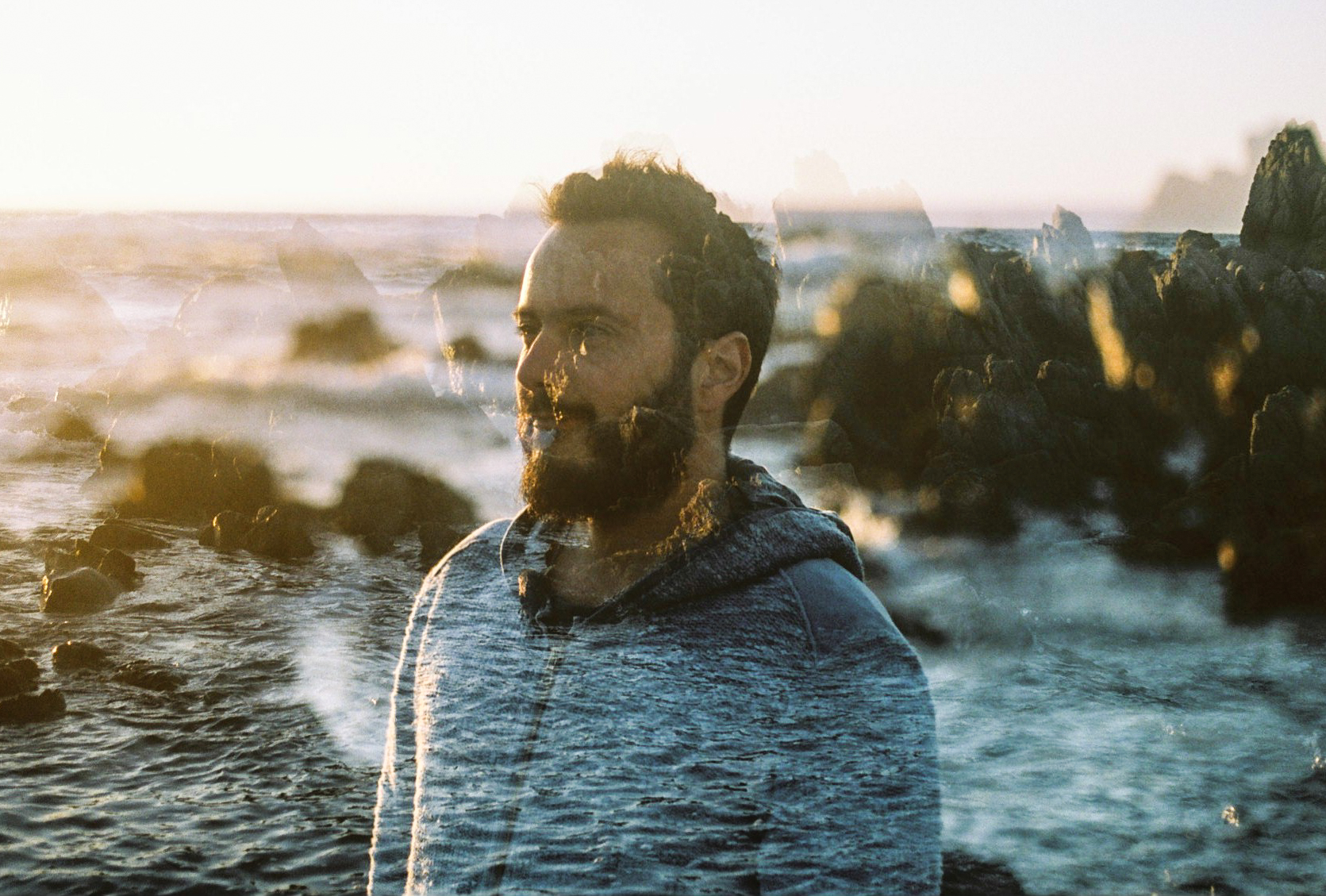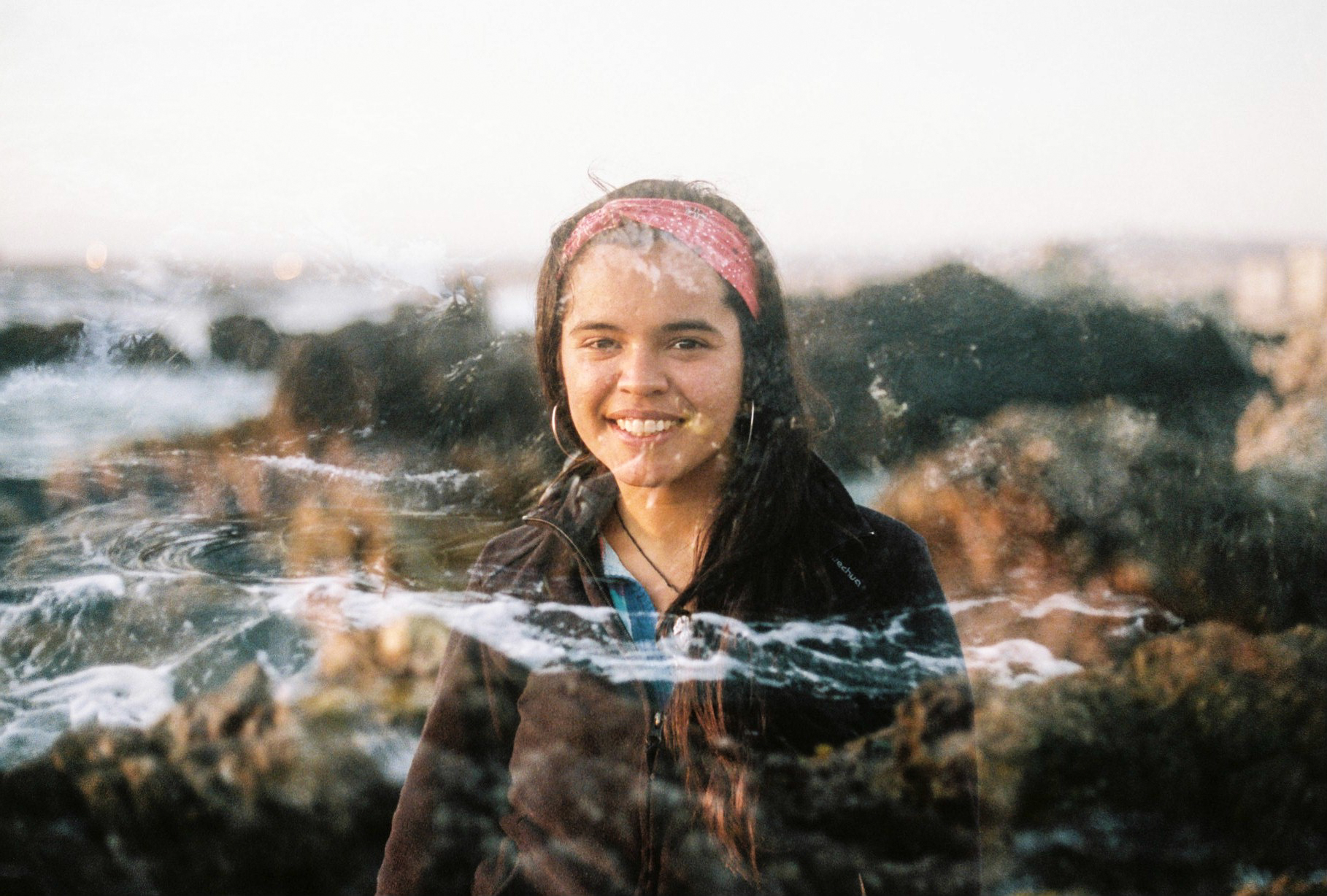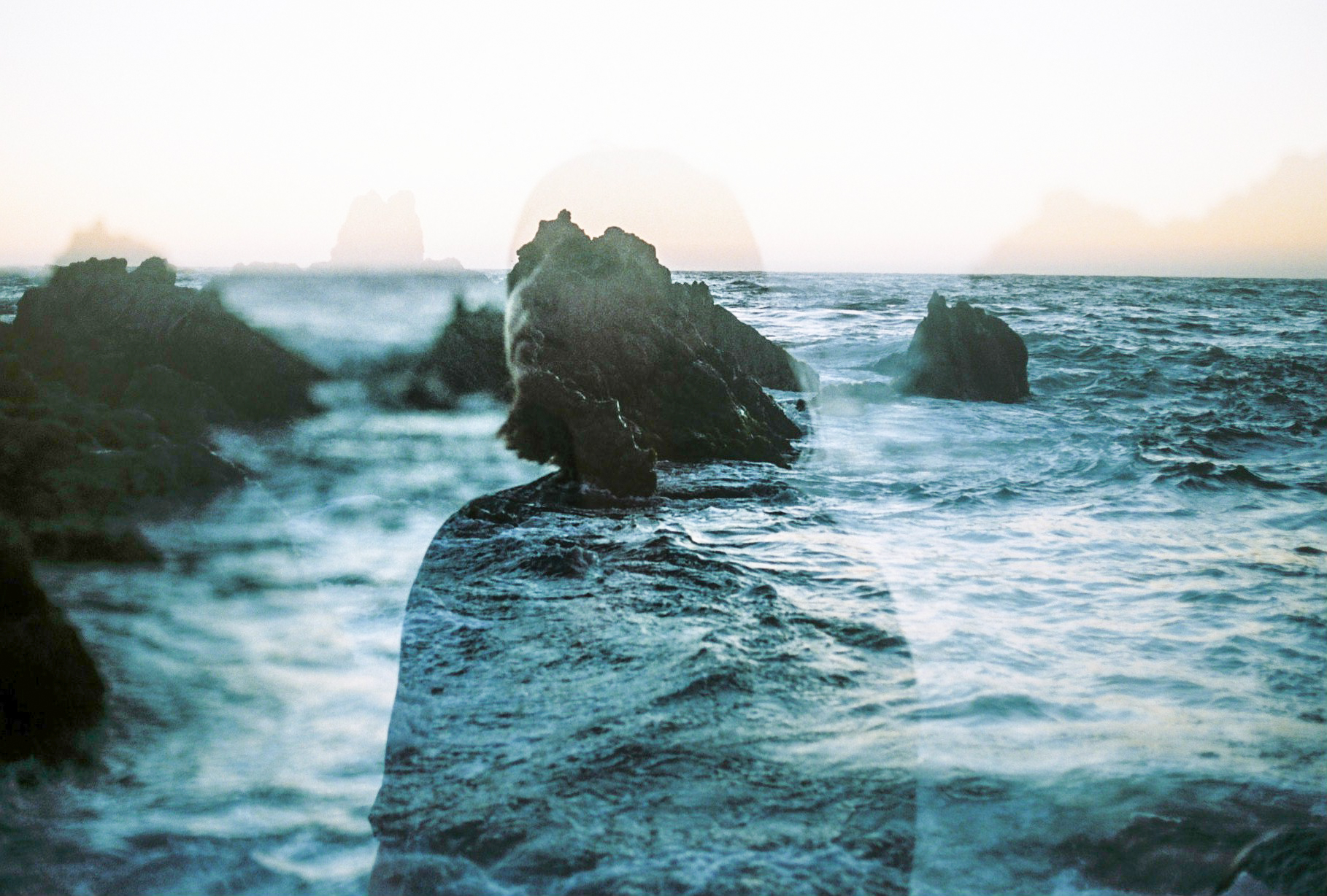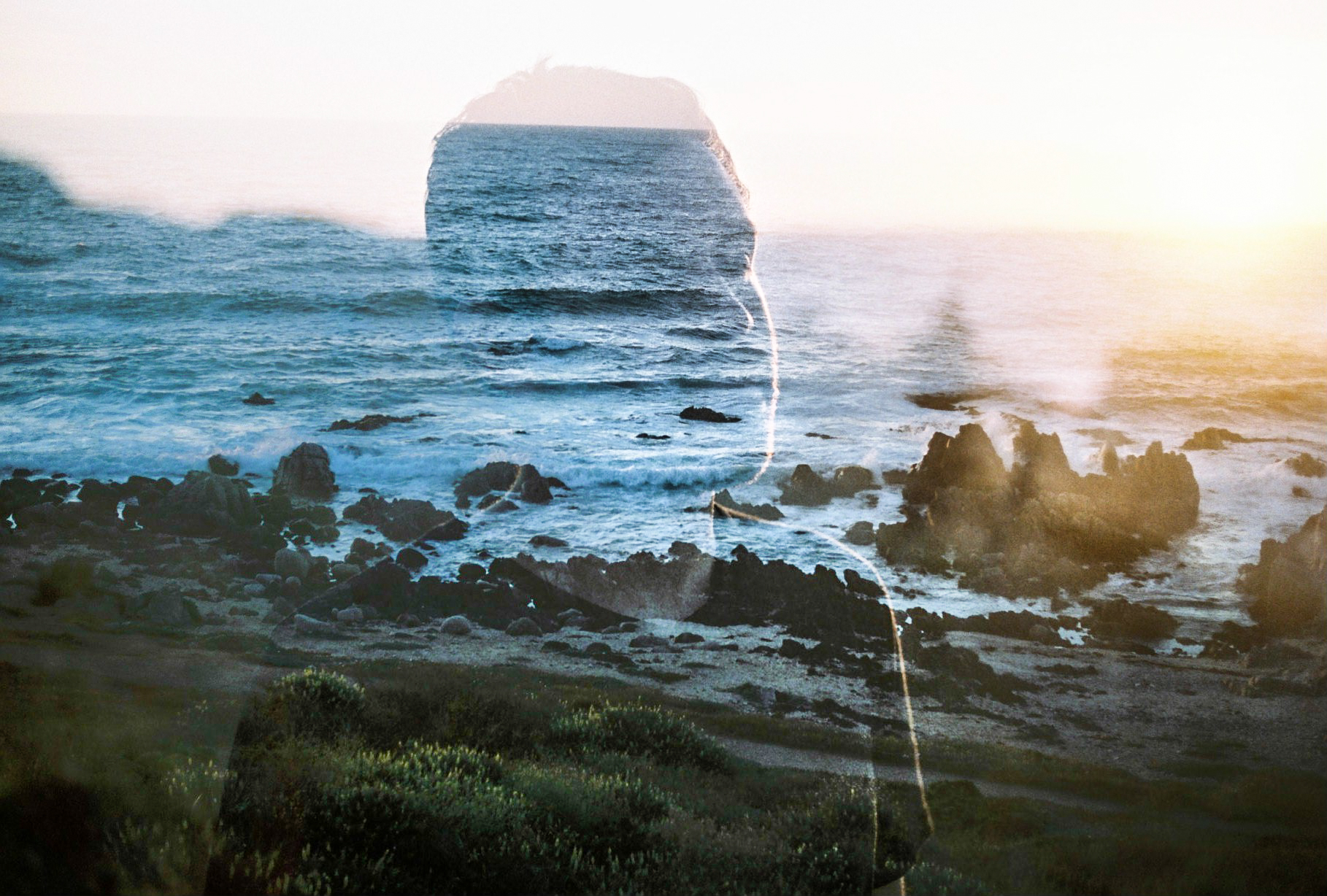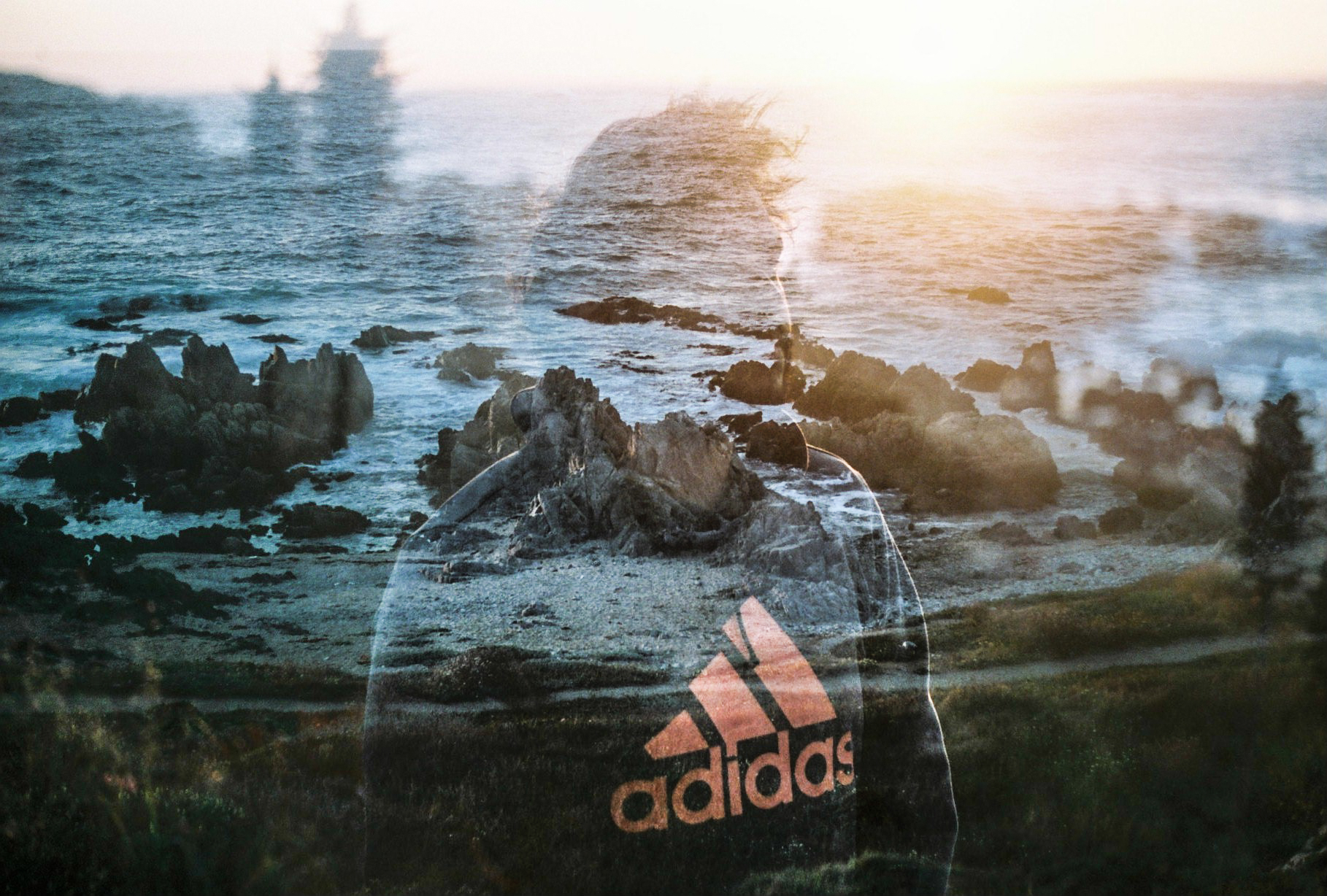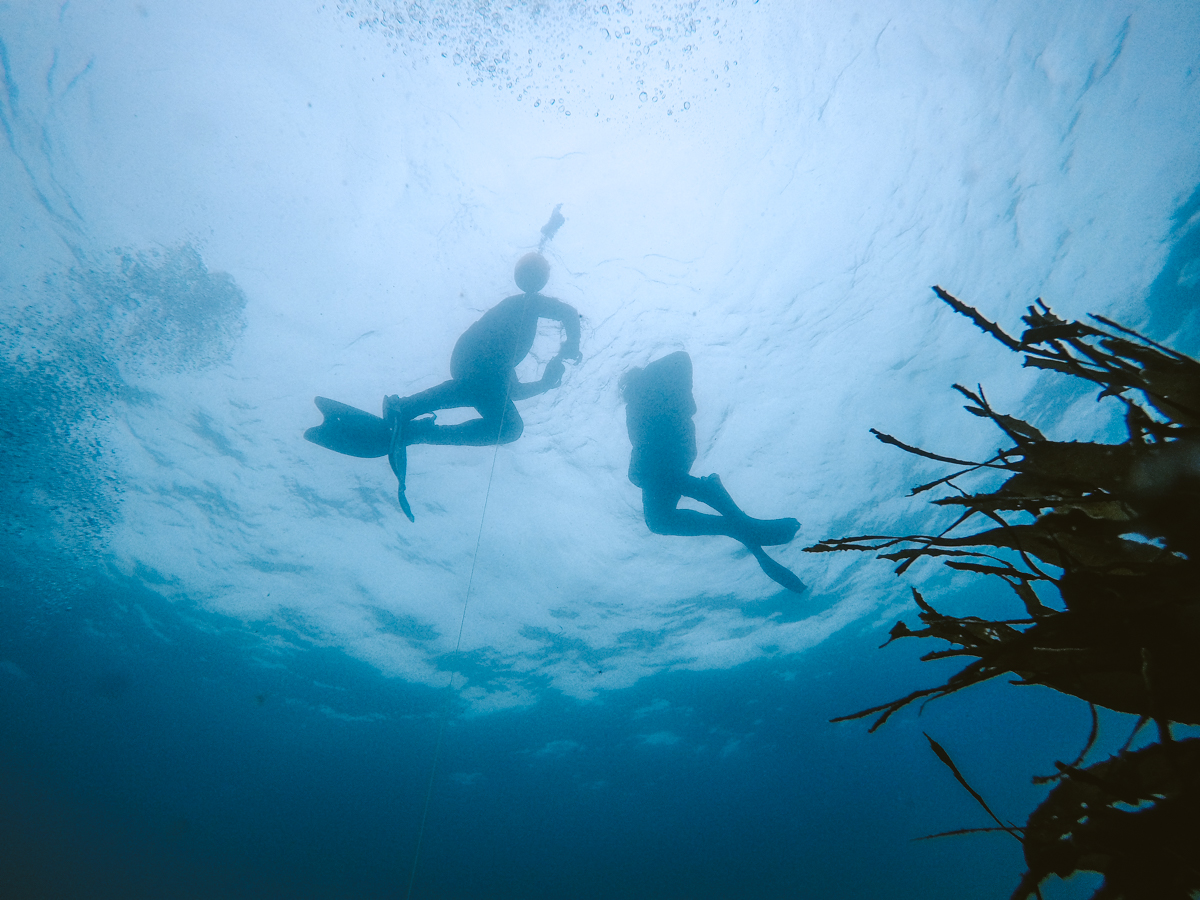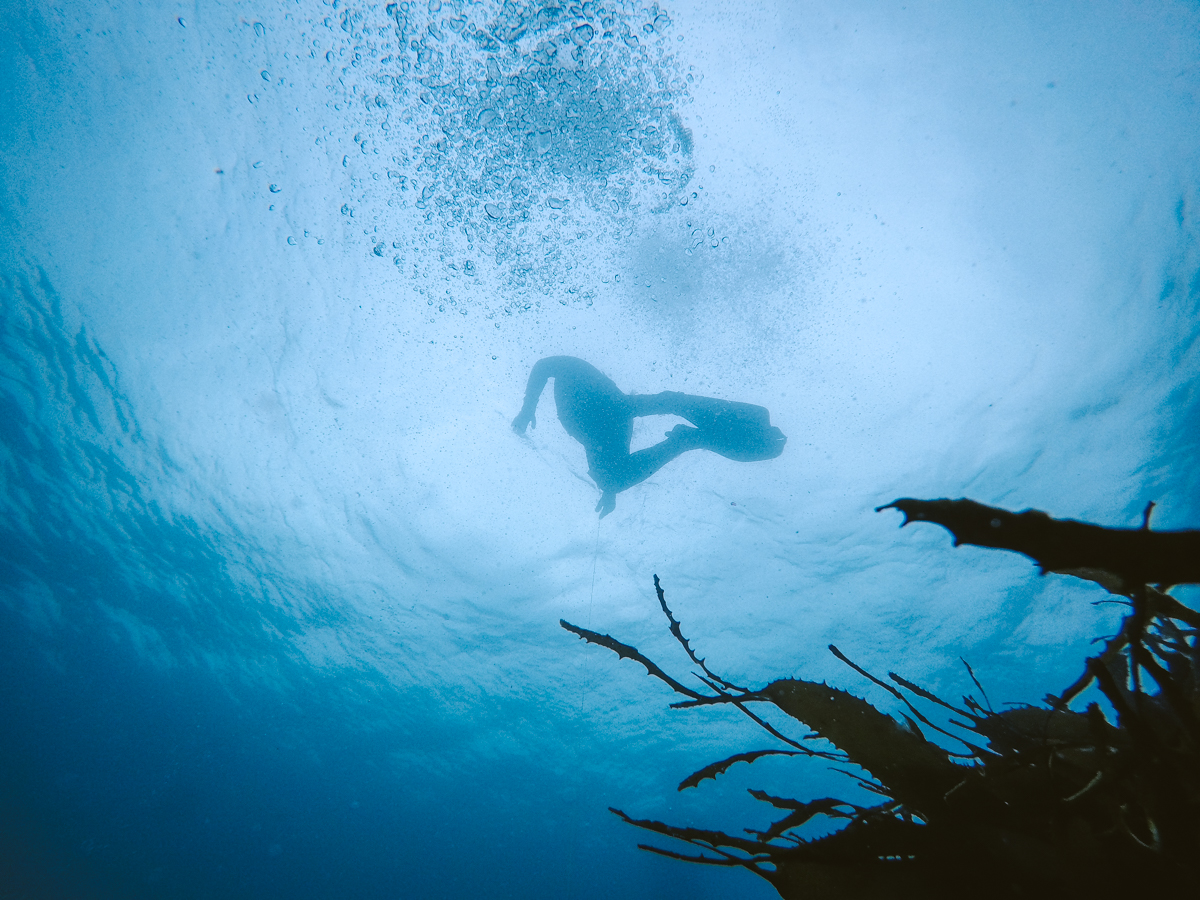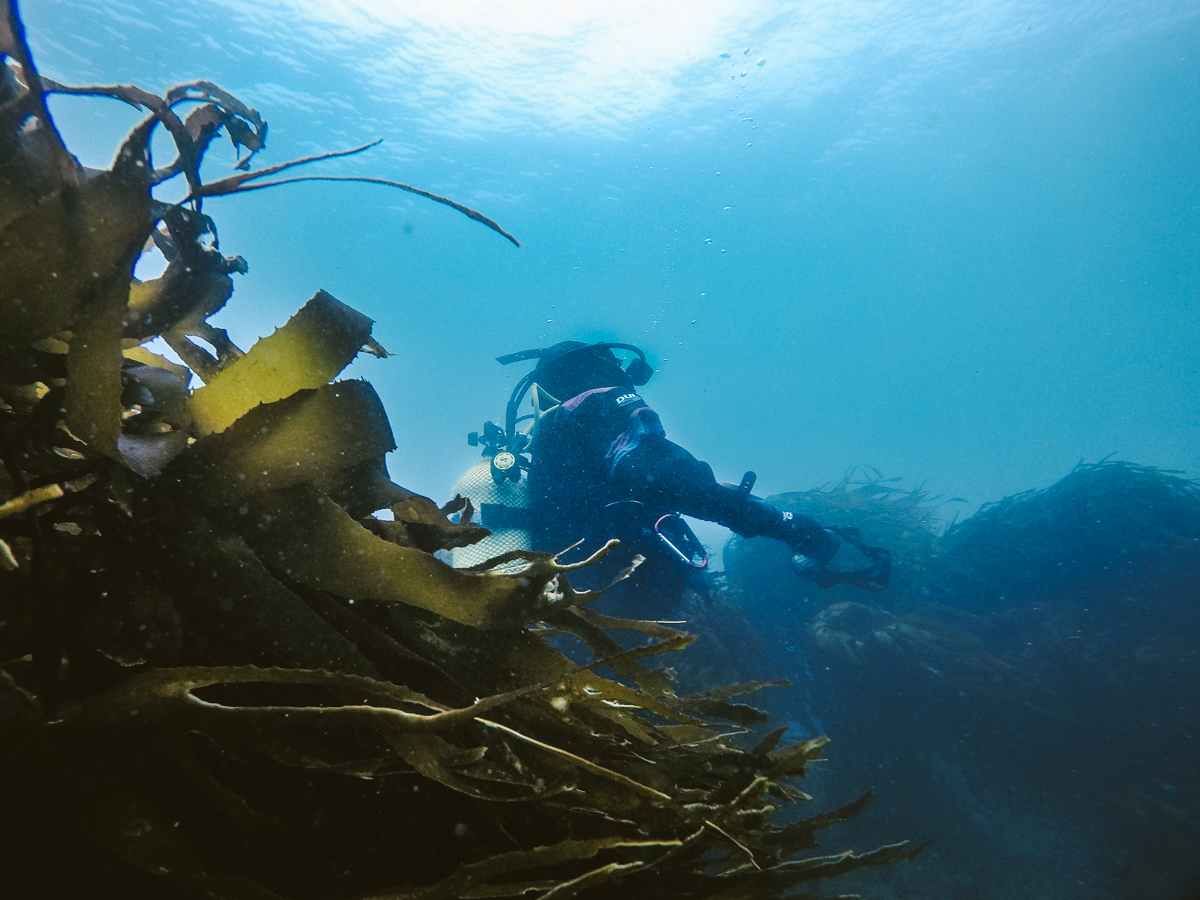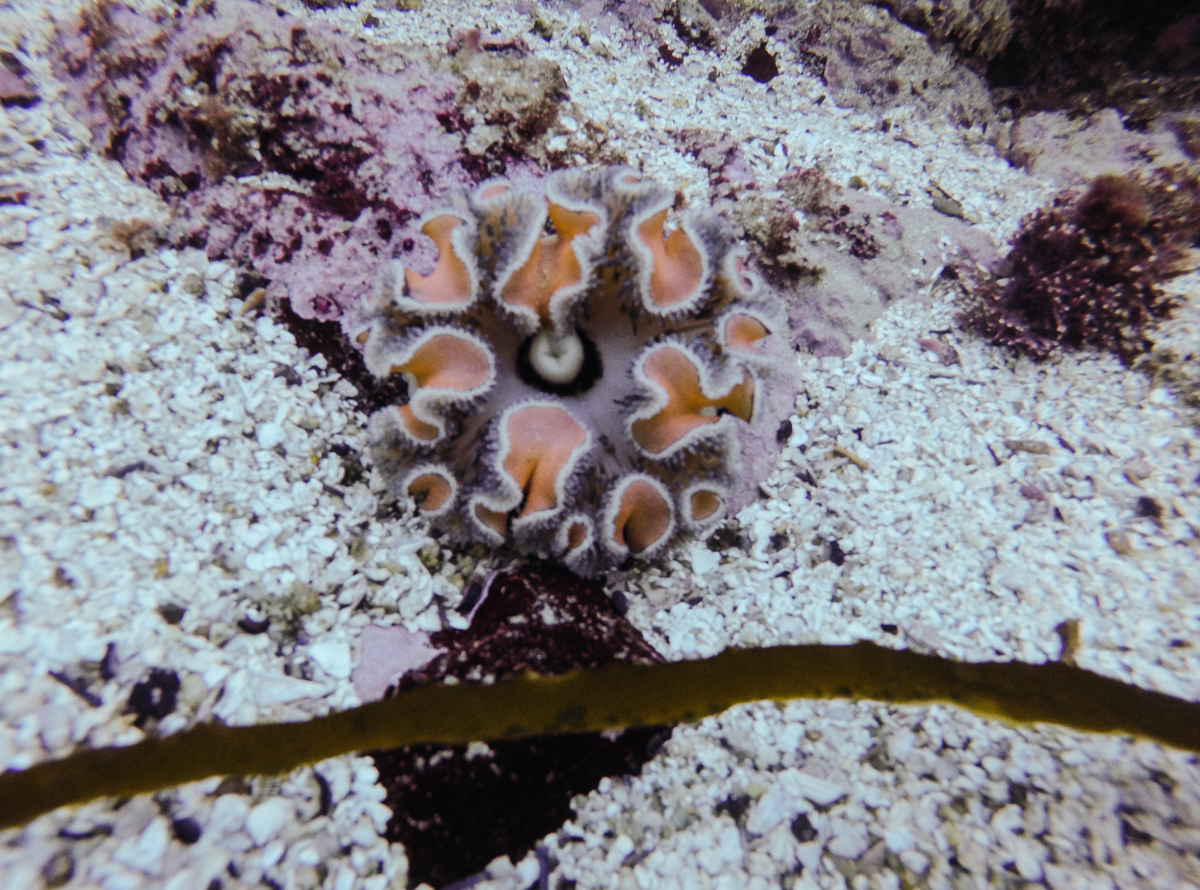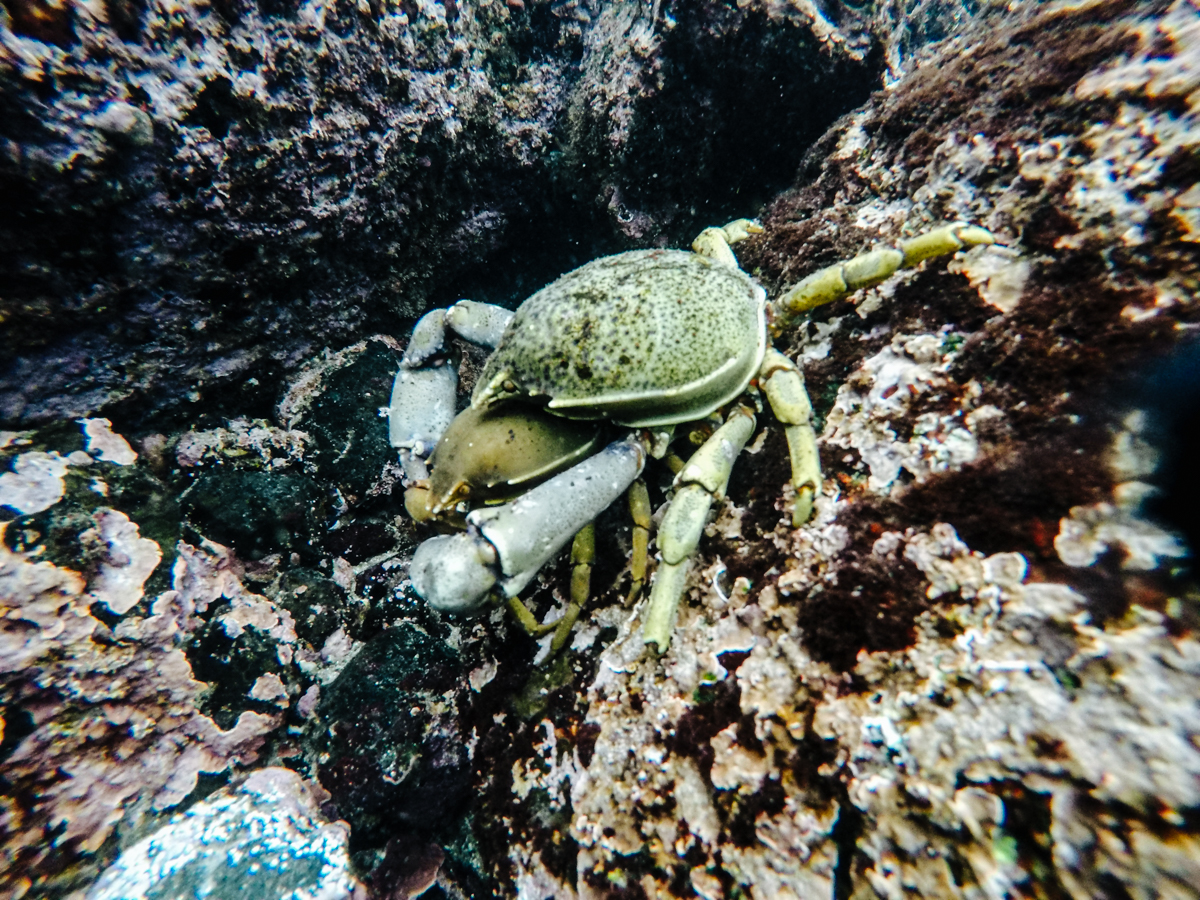As a little girl, I remember hearing about Easter Island. We had lessons about the island in school. I read about it in books. I saw it in documentaries. I was taught about the Moais and about how remote the island was, and I always thought of it as some far off place that few people could access. I never imagined that many years later I would be one of those few people.
An opportunity to travel with my laboratory for a two and a half week research trip to Easter Island (or Rapa Nui as it called by its native people) allowed me to get on a plane and travel 5 hours from the mainland of Chile to one of the most isolated places in the world. I was standing on a green speck in a sea of blue for thousands of kilometers, and I never truly understood just how isolated we were. It never felt real to me and it never will.
The first day we arrived, we headed to the dive shop to make arrangements and unload some of the equipment. I immediately noticed that the dock was directly accessible from the shop and eventually I decided to drop everything and go see the very thing I had been hoping to see for so long. Over the past few months I had been painting organisms from Rapa Nui for a book that my laboratory is producing, and after having looked at those organisms through a computer screen for months and pouring everything into those paintings, I had to see if I could catch a glimpse just from the pier. Fighting my instinct to work all the time, I stole away from the group with my favorite burnt orange skirt rustling in the wind and found my way to the water’s edge. What I saw brought me to tears.
A group of porcupine fish, a species I had only see in books, swam haphazardly in between the boats. There they were in their natural habitat, in a place I had only dreamed about seeing for so long. I dreamed of tropical waters as a child, but they seemed unreachable. Now, here they were. And then, suddenly, a beautiful green sea turtle appeared from underneath a boat. In all her splendor, she arose from her hiding space to breathe. She was beautiful, with dark eyes and with patterns on her shell that looked as if they were painted. In that moment, nothing felt real. I couldn’t believe what I was seeing. As I was admiring the turtle, a school of one of the most common species on the island (“tipi tipi ‘uri” or “Easter Island Butterfly fish”) swam past. Something I had painted and spent so much time studying was real. They were there, moving and breathing.
That was only the beginning.
Two days later, I had the opportunity to immerse myself in the clearest waters I will ever see and I saw my first coral reef. I had heard about coral reefs all my life, and here they were right in front of me. I maintained my buoyancy and floated above them, admiring their delicate beauty from a distance. The current pulsated like breathing and I felt it. I was a part of this world, I was studying it and pulling it into myself as I tried to understand it. I came up from that dive in a bit of shock and it took me a long time to process what I had seen, and it left me starving for more opportunities to experience this foreign place.
I cannot detail everything I experienced in Rapa Nui. However, I will try to relay some of the most meaningful and beautiful things that I experienced during my time on the island.
The Tide Pools
There were roughly two places on the island that I knew I had to see while I was there, one of which being the tide pools. There were tide pools just outside of Hanga Roa that had corals, and after seeing photographs of them on our laboratory’s hard drives I knew I had to see them. I almost didn’t.
There was a possibility that we would go one day, but plans started fading and it appeared as though I would have to unfortunately miss out on seeing them. I tried not to think about it and continued with my work until it was decided that we would go after all. I sat in the truck in anticipation as I watched the wild coastline unfold in front of me. The town of Hanga Roa disappeared and turned into tall golden-green hills. Towering cliff sides hovered over the coastline as if to guard it from outside forces. We pulled in to our destination, climbed down from our lofty truck, and descended into the coastline. The craggy black lava rocks jutted out from the ground in contorted patterns that only became more bizarre as we traversed over the strange world. And then, there they were.
Glimmering in the sun, the pools featured a dazzling array of corals of various colors that beamed radiantly through the turquoise waters. I have never seen colors blend together so beautifully. The breeze rippled over the surface and made the colors blend even further as if it the pools were a prism. It simply took my breath away. The species of corals in this pool (Porites lobata) may only grow up to 1 cm per year, so I can imagine that these beautiful structures were quite old. So much strength and patience over so many years.
One of the pools was particularly large and held a spectacular assortment of gorgeous corals with a smaller pool adjacent to it that held several species of fishes. I photographed the porcupine fish that I had seen the first day I arrived and the photo looked as if I had taken it from under the water. I watched in awe as the fish swam so close to us and as the corals’ vibrant colors radiated from the bottom of the pool. I tried and failed to truly capture the beauty of this place. It was unfathomable just how beautiful it was, and it was truly one of the most beautiful places I have ever seen in my life.
Diving
I have never seen waters like I did in Rapa Nui. I’m not sure I ever will again. The water is like glass and completely transparent due to the lack of nutrients present in the water column. You can see the seafloor below you from the boat. I saw some of the bluest blues I have ever seen. As the sun illuminated the water, an immediate change in color rushed over surface of the sea around the boat and a vibrant blue enveloped us. My cheeks hurt from smiling.
I glided over fields of corals. I traversed over rippling sandy sea floors that merged black and white sand together in beautiful swirling patterns. I saw fish I had only ever imagined seeing, and I saw the animals I had painted come to life right in front of me. There were few moments that were truly as profound for me as seeing those creatures I had worked so hard to paint accurately move and breathe in front of me. They truly existed and did not only live in publications or in books.
In one moment I was running transects and I turned behind me to see a scene that looked straight out of the documentaries that had breathed life into me as a child. A congregation of rocks coated in algae and a few corals surrounded by various species of fish were illuminated by shimmering light from the sun, exactly in the way that you see it in photographs or documentaries. I paused in awe. I felt like I no longer existed, I was simply within a space that was glorious for the sake of being glorious.
In the same dive, I was swimming from one location to another and spotted a cornetfish moving in my direction. We were going opposite ways but crossing paths, and something about this fish drew me in. As we came closer to one another I slowed my breathing so as not to scare the fish with my bubbles and I admired his slender silver body. We had a moment where we both were looking directly into the other’s eyes and I cannot tell you how profound that moment was. I am careful not to anthropomorphize animals as a biologist because it can be a dangerous method of thinking in terms of adding bias to our perception of their behavior. However, these animals know that you are there. They acknowledge your presence. They see you and size you up. We looked at one another, studied one another, and then we went our separate ways. I live for those intimate connections with animals and those moments that remind me that I am studying creatures that are vividly alive.
There was one dive that was particularly important for me. When I first began diving, there was one thing that had always scared me: dropoffs. Anywhere that dropped off to the bottom of the ocean floor or where the bottom was hundreds or thousands of feet down freaked me out. That idea of all that space between me and the bottom and that “void” as my Oceanography professor called it truly made me nervous. However, like many other instances in my diving career, I knew that I had to do it. Once I do something at least once, it no longer scares me. That happened with me the first time I went to 60 ft/18 meters, and the first time I rode the bus alone in Chile. It was something I had to overcome. The year before, I had also come across a photograph of Motu Kao Kao, a rock face that juts out of the ocean. I saw that and remembered thinking, “I have to see that one day.” I was secretly hoping that the opportunity would arise for me to go. It did not appear likely, especially since the group could tell that I was a bit nervous about it. I had actually thought the situation through enough to make myself not nervous, but their nervousness made me nervous again and I felt a lot of negative pressure. But, I had an absolutely wonderful dive buddy, and together she and I descended into a world I never thought I would see. Among the bluest of waters, corals lined the walls of the rocks and life abounded. Fish species I had not seen previously appeared out of seemingly nowhere. I saw my first school of fish in the distance. The massive congregation hung weightless together in complete tranquility. Everything was so close and yet so far away but it felt like none of it was truly real. I ran through my air faster than I would have liked due to me fussing with my buoyancy and the subconscious nervousness, but I arose from that dive with the biggest smile on my face.
Sadly, I took very few photographs during my dives. When I was able to dive, I was working, and my camera housing was in use for other scientific work. However, I did receive the opportunity to photograph at another time.
Snorkeling
The pier offered the opportunity to snorkel the shallow waters of the coast and observe an abundance of species without having to swim out a great distance. “La Caleta” as it was called hosted a variety of green sea turtles that sought shelter in the calm waters near the boats. I had been eyeing the sight for days as a snorkeling destination but never had the time to go since there was work to be done. One day, however, I decided to take matters into my own hands. I only had so much longer in this gorgeous place and had few underwater photographs to show for it. I devised a plan and set out on my own little snorkeling adventure. Normally, I never snorkel alone as it is a dangerous practice because something could happen and you should always have a buddy there in case you need help. However, the cove is directly next to all of the coastal shops and everyone can see you. Plus, there were often other swimmers. I eased myself into the warm water and swam out to meet the wildlife.
What I saw astounded me. There were so many fish, more than I had ever seen in one place at a time in my entire life. Everywhere I turned there was life. The various species of fish were foraging around the algae-covered rocks. A gorgeous turtle swam past me, and I floated beside him. I was shocked to find that he was not disturbed by my presence and he swam gently around me, allowing me to watch him and hover above and below him as I admired his quiet dignity. There was an unspoken sense of trust between us. A moment like that will change you. A moment like that will give you life. The life that had been slowly draining away from me over the past few months was refueled in those moments under the water by myself. It was me and the world I loved. I finally felt like I was a part of something that had driven my every decision for the past 12 years of my life.
On the last full day before I left, I did all of my assigned tasks, assisted the team with their equipment, and then I again tore off to the sea. I stayed in the water for as long as I could stand it, until I was too cold to go on. As I reluctantly finished my dive, I sat on the steps in my wetsuit, breathing and watching the small waves push and pull themselves along the small rocks. I knew this was the end. I knew I may never see this again. I knew I was terminating my last opportunity. But I was so happy, and I don’t think I have ever been that happy. I sat there in that moment, reveling in it as the water dripped down my hair, off my wetsuit, and onto the warm concrete.
Ana Kai Tangata
Few places have moved me as deeply as Ana Kai Tangata. Situated just outside of Hanga Roa, Ana Kai Tangata hangs over a turquoise blue waters with boulders scattered throughout the water that look like mosaic patterns. The cliff faces are extravagant, with one that has gorgeous deep black lava rock and another one that has cream-colored rock mixed with deep browns and whites. In the distance, the towering cliffside of Mataveri overlooks the open ocean. There are also several caves, one of which that has a petroglyph that is hundreds of years old. I have never seen a place as beautiful as as this one. I was in awe at the crystal waters and incredible rock structures. I still think about this place a lot, and I will for a long time. My photographs are not nearly the same as being there, but I hope that they relay just some of what I saw while I was there.
Rapa Nui is unlike anywhere else I have ever seen. It is wild, vibrant place and is more than just the Moais. I wish I could kneel down next to little me and whisper in her ear, “One day, you’ll see those places they taught you in school. That island will make you a better person.” I am still in disbelief that I went. There is still so much to relay. But for now, I will leave you with a few more photographs.
